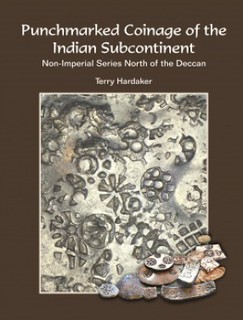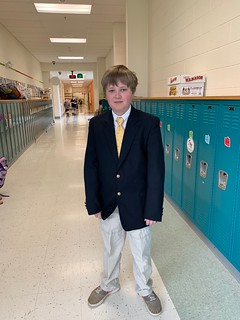
About UsThe Numismatic Bibliomania Society is a non-profit association devoted to the study and enjoyment of numismatic literature. For more information please see our web site at coinbooks.org SubscriptionsThose wishing to become new E-Sylum subscribers (or wishing to Unsubscribe) can go to the following web page link MembershipThere is a membership application available on the web site Membership Application To join, print the application and return it with your check to the address printed on the application. Print/Digital membership is $40 to addresses in the U.S., and $60 elsewhere. A digital-only membership is available for $25. For those without web access, write to: Charles Heck, Treasurer
AsylumFor Asylum mailing address changes and other membership questions, contact Terry at this email address: terrywhite5475@yahoo.com SubmissionsTo submit items for publication in The E-Sylum, write to the Editor at this address: whomren@gmail.com BUY THE BOOK BEFORE THE COIN |
- WAYNE'S WORDS: THE E-SYLUM APRIL 28, 2019
- NEW BOOK: STATO PONTIFICIO VOLUME II
- NEW BOOK: PUNCHMARKED COINAGE OF THE INDIAN SUBCONTINENT
- BOOK REVIEW: COINS AND CURRENCY
- BOOK REVIEWS: U.S. COLONIAL ERA
- DR. SOL TAYLOR (1931-2019)
- MONEY TREE CATALOGS ON NEWMAN PORTAL
- VIDEO: ARTHUR FRIEDBERG ON AUBREY BEBEE
- ORDERS & MEDALS SOCIETY CD OFFER
- F+W MEDIA ASSET SALES SCHEDULED
- MORE ON THE HENRY MCGEE HANGING MEDAL
- NOTES FROM E-SYLUM READERS: APRIL 28, 2019
- THE RICHARD GIMBEL AERONAUTICAL COLLECTION
- MAUNDY MONEY MUSINGS
- VOCABULARY TERM: CLICHé
- REV. FREDERICK MAYER BIRD (1838-1908)
- DR. GEORGE FULD ACQUIRES CIVIL WAR TOKENS
- CANADIAN COIN COLLECTOR GEORGE COOK
- INTERVIEW: RICHARD LOBEL OF COINCRAFT
- STEPHEN ALBUM AUCTION 34 MAY 23-26, 2019
- NUMISMATIC NUGGETS: APRIL 28, 2019
- DLUGOSZ HERITAGE SALE SELECTIONS
- UTAH SPANISH COIN FIND PUZZLES PARK SERVICE
- FATE OF BRITAIN'S 1P AND 2P COINS UNCLEAR
- COUNTERMARKED COMMEMORATIVE BRAZILIAN COINS
- WWII VETERAN'S 1990 SOUVENIR CENT
- MODERN-DAY TIME BANKS
- LOOSE CHANGE: APRIL 28, 2019
- AVENGERS: ENDGAME PURPLE COIN
Click here to access the complete archive a
Click here to unsubscribe (scroll down)
To comment or submit articles, reply to whomren@gmail.com
Content presented in The E-Sylum is not necessarily researched or independently fact-checked, and views expressed do not necessarily represent those of the Numismatic Bibliomania Society.
WAYNE'S WORDS: THE E-SYLUM APRIL 28, 2019
 New subscribers this week include: Karin Armstrong, courtesy of Bob Van Arsdell; and Charles Peterson. Welcome aboard! We now have 5,924
subscribers.
New subscribers this week include: Karin Armstrong, courtesy of Bob Van Arsdell; and Charles Peterson. Welcome aboard! We now have 5,924
subscribers.
Thank you for reading The E-Sylum. If you enjoy it, please send me the email addresses of friends you think may enjoy it as well and I'll send them a subscription (but let me know if they are located in the European Union). Contact me at whomren@gmail.com anytime regarding your subscription, or questions, comments or suggestions about our content.
This week we open with two new books, two reviews, the loss of a longtime hobby leader, and updates from the Newman Numismatic Portal.
Other topics this week include The Money Tree catalogs, Aubrey Bebee, notes from E-Sylum readers, Maundy money, Richard Gimbel, Rev. F. M. Bird, George Fuld, George Cook, Richard Lobel, auction previews, modern time banks, and the fate of Britain's smallest coins.
To learn more about Indian punchmarked coinage, the Island at the Center of the World, Dr. Sol Taylor, the Henry McGee hanging medal, the Mitula Stamp and Coin Company, Egyptian Royal Tour medals, the Mother's medal, Spence's Pigs Meat, and the Avengers: Endgame coins, read on. Have a great week, everyone!
Wayne Homren
Editor, The E-Sylum
NEW BOOK: STATO PONTIFICIO VOLUME II
The second volume on Papal coins from Adrianus VI to Paolus V is now available from Éditions V. Gadoury. The book was nominated for the 2019 IAPN book prize. -Editor
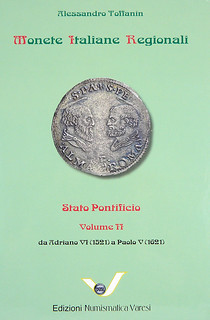 TOFFANIN, Alessandro.
TOFFANIN, Alessandro.
Monete Italiane Regionali. Stato Pontificio II.
Edizioni Varesi, Pavia, Italy, 2018.
ISBN 978-88-99155-08-7
For more information, or to order, see:
https://www.gadoury.com/en/books/mir-stato-pontificio-volume-ii
To read the earlier E-Sylum article, see:
2019 IAPN BOOK PRIZE NOMINATIONS
(https://www.coinbooks.org/v22/esylum_v22n15a03.html)
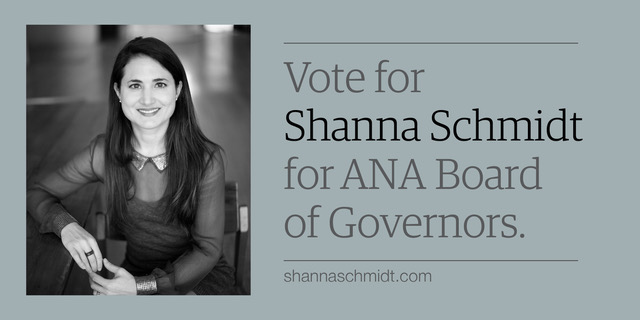
NEW BOOK: PUNCHMARKED COINAGE OF THE INDIAN SUBCONTINENT
A new book by Terry Hardaker on the topic of the punchmarked coinage of the Indian subcontinent has been published. It is part of a larger series - in 2014 the volume on the Magadha-Mauryan Series was published; this one covers "Non-Imperial Series North of the Deccan". As noted earlier, sites like PrintsAsia.com may be able to offer better deals for books published in India, -Editor
Punchmarked Coinage of the Indian Subcontinent: Non-Imperial Series North of the Deccan
Authors (s): Terry Hardaker (Author)
Format: Hardcover
ISBN-13: 9788193829110
Pages: 296p., 91 Colour and Black and White Plates; 28cm.
Pub. date: 23.04.2019, 1st. ed.
Publisher: Indian Institute of Research in Numismatic
Language (s): English
Bagchee ID: BB119855
List price: US $ 150,00
Bagchee price: US $ 135,00
Member price: US $ 121,50
For more information, or to order, see:
Punchmarked
Coinage of the Indian Subcontinent: Non-Imperial Series North of the Deccan
(http://www.bagchee.com/books/BB119855/punchmarked-coinage-of-the-indian-subcontinent-non-imperial-series-north-of-the-deccan)
THE BOOK BAZARRE
BOOK REVIEW: COINS AND CURRENCY
In response to my earlier request, Dave Hirt provided this review of the book Coins and Currency by Mary Ellen Snodgrass. Thanks! -Editor
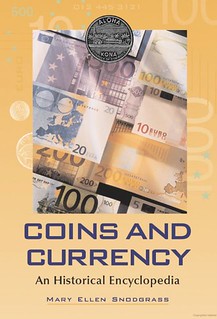 Coins and Currency: An Historical Encyclopedia
Coins and Currency: An Historical Encyclopedia
by Mary Ellen Snodgrass
Next to the title page are listed some books on other subjects by Ms. Snodgrass, but this seems to be her first effort to write on Numismatics. I have the 2003 hard bound edition, although I see that a new edition is due out in June of this year. The subjects are in alphabetical order, and also indexed. The book has 562 pages. There are many short biographies of people connected to coins and coinage. One that interested me was of Thomas Gresham. Of course I knew of his famous law, but not of his personal life.
Another interesting thing that would be of value to collectors of world coinage is 27 pages of translations of coin mottos into English. Most are from Latin, but some from other languages.
There is a two page list of famous counterfeiters of the world, the dates they were active, and their fate. England was especially hard on counterfeiters, most of them were hanged. Also a 4+ page list of pirates, dates active, and their fate, most not good, although one wrote a book. There is a three page list of money slang, mostly American or British.I had often heard the slang, quid, now I know it means a British Pound. Also much information on shipwrecks.
Used copies of this book can be purchased quite inexpensively on line. I believe it would find a good place in most numismatic libraries.
Seems like a useful volume. I was impressed by the biography I read when I first came across the book on Google Books. Here's the description of the 2nd edition from Amazon. -Editor
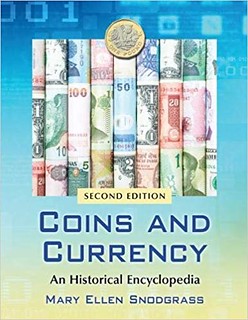 Throughout history, money has developed along with society. During ancient times currency took many forms, including such varied items as
beaver skins and sea salt blocks. As societies made technological and artistic advancements, their monetary systems and currencies advanced as well.
Today, coins and currency are an important part of the historical and archaeological record, providing information regarding the culture, religion,
interests, and major leaders of societies throughout the world.
Throughout history, money has developed along with society. During ancient times currency took many forms, including such varied items as
beaver skins and sea salt blocks. As societies made technological and artistic advancements, their monetary systems and currencies advanced as well.
Today, coins and currency are an important part of the historical and archaeological record, providing information regarding the culture, religion,
interests, and major leaders of societies throughout the world.
This updated second edition offers numerous entries of historical commentary on the role of coins and currency in human events, politics and the arts. Beginning with the origin of coins in ancient Sumeria, this reference work follows advancements in metallurgy and minting machines to paper, plastic and electronic currencies designed to ease trade and halt counterfeiting. A timeline of important events in the history of money is included, along with a glossary and bibliography. Photographs of coins and bills enhance the text, providing an up-close look at many beautiful artifacts.
To read the earlier article, see:
MORE ON THE MYSTERY WB WREATH-WREATH MEDAL
(https://www.coinbooks.org/v22/esylum_v22n15a12.html)
For more information from Amazon, see:
Coins and Currency: An Historical Encyclopedia
(https://www.amazon.com/Coins-Currency-Mary-Ellen-Snodgrass/dp/0786414502/ref=sr_1_2)
Coins and Currency: An Historical Encyclopedia 2nd
Edition (https://www.amazon.com/Coins-Currency-Mary-Ellen-Snodgrass/dp/1476677964/ref=sr_1_1)
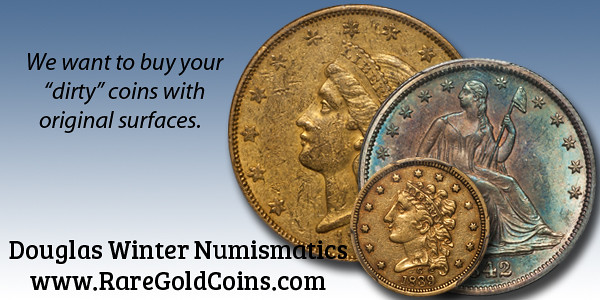
BOOK REVIEWS: U.S. COLONIAL ERA
Just as decent numismatic books like Coins and Currency: An Historical Encyclopedia can sometimes be found outside numismatic circles, so too can interesting and useful numismatic facts be found in a whole spectrum of non-numismatic books. Jack Howes is the President of the Colonial Coin Collectors Club (C4), and he reviewed some useful non-numismatic books in his "President's Corner" column in the Spring 2019 issue of The C4 Newsletter. -Editor
My interest in colonial coins and related stuff began as an adjunct to reading the history of the period. I find interesting parts in the whole of the period from Columbus to the Revolutionary War and its aftermath. I collected coins when I was young, typical stuff, Lincoln pennies, Jefferson nickels, etc. As is common, I lost interest when I got to high school. I got reinterested in coinage of the colonial period only after finding my way back to the history. Perhaps, I like being able to touch history. But my main point here is that I continue to read the history and I find that keeps me engaged. I have some suggestions for those looking for a way into the history of the period. Sometimes history books can be a hard slog and I have read my share of those kinds of books. I tend not to finish those or read only parts for a specific area I am studying. But there are others that are good reads from start to finish. Sometimes those books are not strictly history but rather historical fiction -- but so what.
 The first book I will mention is Mayflower by Nathaniel Philbrick. By the title you might suppose it is about the pilgrims who
landed at Plymouth in 1620. Well, it is about them, but the book then covers the 50-year period until the end of King Phillip’s War. If you have
never heard of this war, that alone is a good reason to read this book. How did that war affect the development of the colonies? What was going on
while John Hull and Robert Sanderson were operating their Boston mint? Read this book to find out.
The first book I will mention is Mayflower by Nathaniel Philbrick. By the title you might suppose it is about the pilgrims who
landed at Plymouth in 1620. Well, it is about them, but the book then covers the 50-year period until the end of King Phillip’s War. If you have
never heard of this war, that alone is a good reason to read this book. How did that war affect the development of the colonies? What was going on
while John Hull and Robert Sanderson were operating their Boston mint? Read this book to find out.
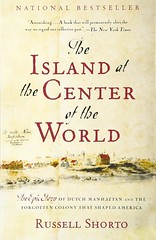 The next book is Island at the Center of the World by Russell Shorto. A little more difficult than Mayflower but not much. Shorto
wrote about the origins of New Amsterdam (Manhattan), the period of Dutch rule to when the English and the Duke of York took it from the Dutch. This
book was based on a rediscovered trove of original documents in Dutch found in the New York State Library and only recently translated. How did what
the Dutch started come to define a lot about what America has become? Yep, read this book.
The next book is Island at the Center of the World by Russell Shorto. A little more difficult than Mayflower but not much. Shorto
wrote about the origins of New Amsterdam (Manhattan), the period of Dutch rule to when the English and the Duke of York took it from the Dutch. This
book was based on a rediscovered trove of original documents in Dutch found in the New York State Library and only recently translated. How did what
the Dutch started come to define a lot about what America has become? Yep, read this book.
 The last book I will recommend is one about Washington and the end of the Revolutionary War, i.e., Yorktown. In the Hurricane’s Eye
also by Nathaniel Philbrick. This is a recent book, published 2018. Lots of books have been written about Washington. Some like Ron Chernow’s
biography of Washington, I also recommend. Some not so much. This one I was unsure of and figured I might read only part. A few days later, I had
finished it. One other point I want to make is that I often find numismatic related tidbits in these books that aren’t found elsewhere.
The last book I will recommend is one about Washington and the end of the Revolutionary War, i.e., Yorktown. In the Hurricane’s Eye
also by Nathaniel Philbrick. This is a recent book, published 2018. Lots of books have been written about Washington. Some like Ron Chernow’s
biography of Washington, I also recommend. Some not so much. This one I was unsure of and figured I might read only part. A few days later, I had
finished it. One other point I want to make is that I often find numismatic related tidbits in these books that aren’t found elsewhere.
For example, did you know that the American troops involved in the Yorktown siege were rarely paid and when they did get paid it could be in different currencies?...
From Morris’s perspective, the most important part of the news about de Grasse’s in the Chesapeake was knowing the admiral had the 500,000 pesos collected by Saavedra in Havana. With that amount of money waiting for the French army in Virginia, Rochambeau was now willing to loan Morris the twenty-five thousand dollars in coins needed to pay Washington’s soldiers. Not only were the French providing the United States with a navy, they were paying its army. The day after Washington reached out to Morris, kegs of silver dollars began to arrive at Head of Elk. The soldiers watched in wonder as the paymaster knocked the heads off the barrels and the coins spilled out across the ground. “I received the only pay that I ever drew for my service during the war,” thirteen-year-old private John Hudson of the First New York Regiment later remembered, “six French crowns.” [Philbrick, In the Hurricane’s Eye, pp. 174-175.]
I am interested in hearing from members about books they liked or good reads they think I have missed! Email me or find me at the C4 convention in the fall.
Many thanks to Jack Howes and C4 for permission to republish this article here. If anyone has comments or questions for Jack I'll gladly forward them.
I've also read Island at the Center of the World; it provides a great perspective on New York's role in the world and its impact on the success of the nation.
I often save newspaper and magazine articles for our college student son. I've told him, "You are what you eat, and this is some food for your brain." I asked him once, "How long does it take to write a tweet or Facebook post?" Minutes. "How long does it take to write a magazine article?" At least a month, and sometimes several months. "How long does it take to write a book?" Books are typically the result of years of the author's toil and sweat, experience and insight. So which has the most nutrition for your brain? -Editor
For more information about the Colonial Coins Collectors Club (C4), see:
http://colonialcoins.org/

DR. SOL TAYLOR (1931-2019)
Lincoln Cent Expert Dr. Sol Taylor passed away earlier this month. Here is some information I pieced together from multiple sources with the assistance of his daughter Elana Taylor Vorspan and Greg Burns, Editor of The California Numismatist. -Editor

Dr. Taylor presenting to grandson Evan’s second grade class in Encino in 2017
Dr. Taylor passed away after a brief bout of lymphoma. He was born October 14, 1931 in Brooklyn, NY and attended Tilden High School and Brooklyn College. He served on active duty in the US Coast Guard from 1953-55. Later he taught high school in NY, then moved out to CA to teach and he completed his doctorate in education from USC in 1971.
He was married and had two children in the 1960s. He divorced soon after and met Pearl Taylor in 1977, married that same year, had son Benjamin in 1978, and daughter Elana in 1979. He was a professor at Chapman College in Orange County from 1972-1982 before moving to the San Fernando Valley and changing careers to become a realtor.
Taylor founded the Society of Lincoln Cent Collectors and served as President from 1982-2009. He was a 50 year member of the American Numismatic Association, and was a member of the Numismatic Association of Southern California and Whittier Coin Club.
He leaves behind his wife Pearl, four children and nine grandchildren.
For more information about Dr. Sol Taylor, see:
http://soltaylor.com/
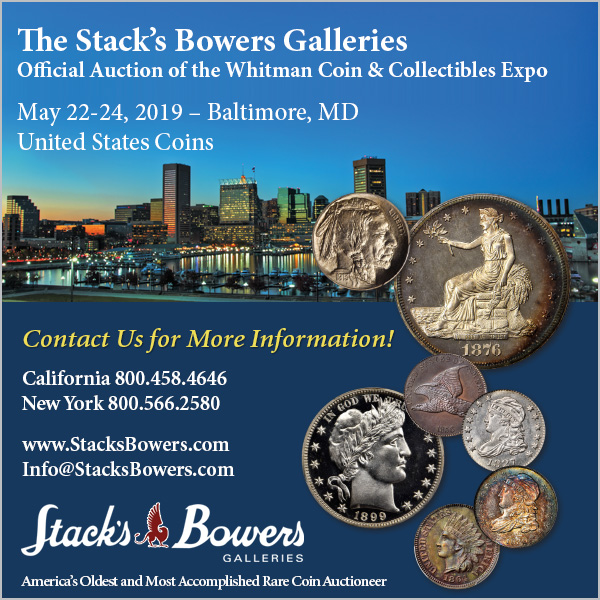
MONEY TREE CATALOGS ON NEWMAN PORTAL
The latest additions to the Newman Numismatic Portal are the Money Tree numismatic literature sale catalogs. Project Coordinator Len Augsburger provided the following report. -Editor
Money Tree Numismatic Literature Sale Catalogs on Newman Portal
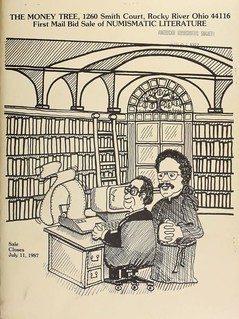 The Money Tree (Ken Lowe and Myron Xenos) conducted 32 numismatic literature auction sales between 1987 and 1999, and these catalogs are
now accessible on Newman Portal. Opening remarks by Xenos in the initial catalog set the tone for the remainder of the series. “Both Ken Lowe and
myself have tried to present this Sale to you in a humorous as well as educational vein. Ken has spent the few weeks pulling books and pamphlets out
of the catacombs and cataloging them….Ken never finished rummaging through the dungeon….”
The Money Tree (Ken Lowe and Myron Xenos) conducted 32 numismatic literature auction sales between 1987 and 1999, and these catalogs are
now accessible on Newman Portal. Opening remarks by Xenos in the initial catalog set the tone for the remainder of the series. “Both Ken Lowe and
myself have tried to present this Sale to you in a humorous as well as educational vein. Ken has spent the few weeks pulling books and pamphlets out
of the catacombs and cataloging them….Ken never finished rummaging through the dungeon….”
The Money Tree never took themselves too seriously and the personalities of the writers are in full-view in all their unvarnished glory. The approach was a bit different than that of their competitor George Kolbe, himself not above the occasional snarky comment, which was expressed so subtly that only the most aware would catch on, and always in language artful enough to claim “plausible deniability.” The 1980s and 1990s were truly a golden age for the genre and these catalogs are a pleasure to read. Newman Portal is grateful to Myron Xenos for permission to scan these publications.
Link to Money Tree sales on Newman Portal:
https://nnp.wustl.edu/library/auctioncompanydetail/511339
It was indeed a golden age of collecting numismatic literature. The Money Tree catalogs were a delight to read. In those days I consigned duplicates to Kolbe, Charlie Davis, Money Tree and Fred Lake, but only Money Tree was a short drive away from my Pittsburgh base. I became fast friends with Ken and Myron and greatly enjoyed my visits to their Cleveland area office, hauling boxes of numismatic literature both ways. -Editor
VIDEO: ARTHUR FRIEDBERG ON AUBREY BEBEE
These are selections from the David Lisot Video Library that feature news and personalities from the world of coin collecting. David has been attending coin conventions since 1972 and began videotaping in 1985. In 2017 the Newman Numismatic Portal reached an agreement to list all David’s videos on their website. Each week an excerpt of a different video is available on the CoinTelevision YouTube channel.
Here's one on Aubrey Bebee in an interview with Arthur Friedberg. -Editor

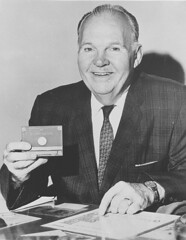
Arthur Friedberg talks about Aubrey Bebee, who is considered of the greatest paper money collectors of all time. Bebee’s collection was donated the the American Numismatic Association and can be viewed on the ANA website at www.money.org. Arthur is publisher of “Paper Money of the United States.” Since 1953 this book has been one of the most important books about the historical information and pricing of US bank notes. Arthur is son of the original founder and also publishes books on gold coins and other numismatics. In this in-depth and personal interview Arthur shares about his life, his family, how the Friedberg catalogues came about, the danger of cultural property laws, and much more.
The entire interview is available on the Newman Numismatic Portal at:
https://nnp.wustl.edu/library/multimediadetail/522852
An excerpt of the video is available for viewing on the Coin Television YouTube Channel at:
https://youtu.be/zfnWpKvjp8Y
Arthur Friedberg Talks about Paper Money Collector Aubrey Bebee.
June 28, 2010. VIDEO: 27:22.
Arthur Friedberg, President, Coin and Currency Institute, David Lisot, Interviewer, CoinTelevision.com.

ORDERS & MEDALS SOCIETY CD OFFER
Frank Draskovic of the Southern California Orders & Medals Society has a nice offer for E-Sylum readers. -Editor
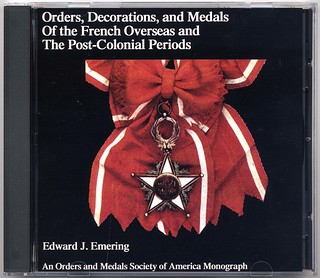
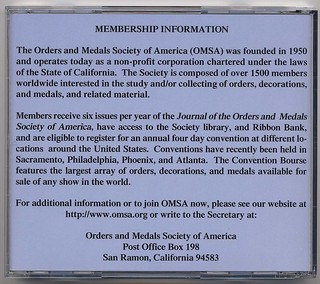
At the Orders & Medals Society of America (OMSA) website (www.omsa.org), you will find under the publications tab, this CD book* (description below). It seems they made too many of these a few years back, so they were giving them away at last year's convention.
Orders, Decorations, and Medals of the French Overseas and the Post-Colonial Periods
By: Edward J. Emering.
From Algeria and Annam to Togo and Tunisia the author has opened the door to the fascinating world of French colonial medals. Over three hundred and eighty color illustrations document and catalog the awards. Our first on CD!
I suggested, and OMSA agreed to, a joint effort with the Southern California Orders & Medals Society to offer these CDs gratis to readers of numismatic publications to inform and entice collectors to consider this endlessly fascinating medallic specialty, which is far too little known in American numismatic circles. Of course I thought of you and the E-sylum readership first.
We are offering the CD free for only the media mail (the ONLY shipping method I will use) postage & mailer cost of $3.00 each in cash only, that amount to be remitted to me by USPS mail only (no checks, no credit cards). The Southern California Orders & Medals Society, i.e. me as president, floor sweeper and chief schlepper, will fulfill delivery on a first come, first served basis. I have 27 CDs now. If OMSA has more in storage, I'm sure they'll gladly supply me as needed.
I have no idea how many of your readers would be interested in such an offer, but just so I'm not bombarded with un-fillable requests, I ask that anyone interested kindly email me first with their request (only one CD book per name and address & shipment to USA addresses only). I'll then confirm availability by email and ship after the $3.00 cash payment is received. So that's it.
Frank Draskovic
Southern California Orders & Medals Society
PO Box 803
Monterey Park, CA 91754-0803
Email: fdraskovic@hotmail.com
What a great offer! Thanks to Frank, OMSA and SCOMS for their generosity. I have a copy of the CD, and it's a professionally done affair. I encourage anyone with an interest or just numismatic curiosity in general to request a copy and check it out. -Editor
For more information on the Orders & Medals Society of America, see:
www.omsa.org
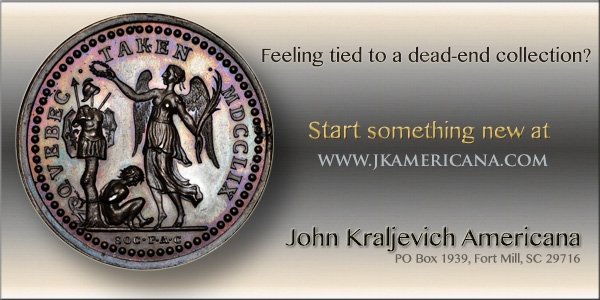
F+W MEDIA ASSET SALES SCHEDULED
For weeks now we've been following news of the bankruptcy of Krause Publications parent company F+W Media. Bloomberg published notices of bidding procedures for F+W assets, which would include the Krause assets including books, catalogues, periodicals and web sites. Remember, just because the overall parent is bankrupt it doesn't mean that none of the component businesses are viable - some may well be able to continue on their own under new management. Here's hoping suitable buyers can be found. -Editor
Bidding Procedure Approved for F+W Media, Inc.
Apr 15 19
The US Bankruptcy Court gave an order approving the bidding procedures relating to the sale of certain assets of F+W Media, Inc. on April 15, 2019.
The debtor's assets include assets related the F+W books line. To qualify as a qualified bidder, interested parties should submit their bids by
May 16, 2019 along with good-faith deposit in the amount of 7.5% of the purchase price. The debtor has scheduled an auction on May 20, 2019. The
stalking horse bidder would be entitled to a break-up fee and expense reimbursement in case of termination of the asset purchase agreement. The sale
hearing is scheduled for May 22, 2019.
See the article for more information. There is another auction on May 30, 2019 for "assets related to the communities line." Thanks to the April 23, 2019 issue of News & Notes from the Society of Paper Money Collectors for the link to the article.
I'm not sure, but the "communities line" seems to mean the magazines. It doesn't appear that offers would be entertained for individual periodicals.
This split of F+W could mean a split of the former Krause Publications, with book publishing (the Standard Catalog of World Coins, etc) being separated from the periodicals (such as Numismatic News, Coins Magazine, and Bank Note Reporter.
I understand NN, CM and BNR pull their pricing from a database tied in with the former Krause Publications books division. If a different purchaser buys the books, the periodicals might have to purchase pricing information from the new owners, buy it elsewhere, or do without, reducing their product value to readers. -Editor
To read the complete article, see:
Company Overview of F+W Media, Inc.
(https://www.bloomberg.com/research/stocks/private/snapshot.asp?privcapid=96960)
To read a March 12, 2019 Publisher's Weekly article, see:
F+W
Media Files Chapter 11, Will Sell Assets
(https://www.publishersweekly.com/pw/by-topic/industry-news/financial-reporting/article/79497-f-w-media-files-chapter-11-will-sell-assets.html)
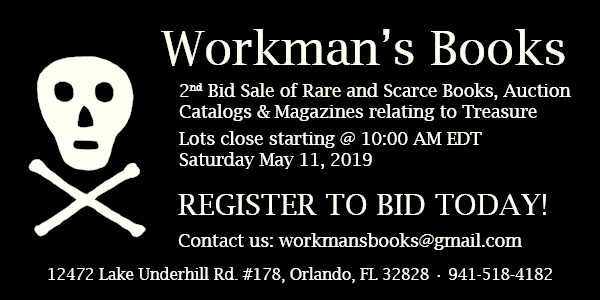
MORE ON THE HENRY MCGEE HANGING MEDAL
Last week we discussed an unusual medallic item depicting a public execution in Houston, TX. -Editor


Paul Bosco writes:
I would not class this as a fob, which would be a piece thru which one could run a leather watch strap. Based on my decades of experience with exonumia, I think it is unlikely the piece is a non-contemporary concoction.
The linked article mentions that the presenter's brother was a watchmaker. Presumably he could have made this multi-piece medal. This further
supports the authenticity of the piece. A link to the eBay listing, and a report of the price realized, would have been nice. I found this:
https://www.ebay.com/itm/1892-Houston-Texas-Public-Hanging-Execution-Medal-Medallion-Keepsake-Texana-HPD-/264269932217?_trksid=p2047675.m43663.l10137&nordt=true&rt=nc&orig_cvip=true
It brought $760 and was listed in two categories of Historical Memorabilia (Police & Criminals). I would have have tried listing under Criminals and Numismatic Medals. On PicClick it says there were 152 page views --not a lot, in my opinion. I wonder how many E-Sylum readers would have bid on it.
Thanks - the original article didn't reference the eBay item, and I was unable to locate the listing in time for publishing Sunday night. It's an odd piece even beyond its ghastly topic; part medal, part ornament, like a watch fob, but not quite. -Editor
The Henry McGee medal was of interest to me as I worked for the Houston Police Department for 37 years. One of my buddies there – Nelson Zock - has written a book, putting together stories from research in the old newspapers, on all the Houston officers killed in the line of duty. I thought you might like to read the story he put together on officer James Fenn.
The account is too lengthy to publish here, but here's a short excerpt. It goes into great detail on the events the day of the execution, including McGee's discussions with family members and the crowd assembled on the streets. -Editor
On Saturday night, March 14, 1891, Houston Police Officer James E. Fenn was on duty, assigned to a Negro dance hall commonly known as the “Bill Davis dive.” While there, he observed an individual known to him and also known to usually carry a pistol. He approached this man and upon doing so, was shot. A key witness, Joe Walker, related the following:
“I was standing behind one of the violinists when Officer Fenn came over to me and said, ‘Hello, Joe, I thought you had gone home.’ I told him, ‘I thought I would stay a while longer.’ Officer Fenn saw a man he thought had a pistol and started for him. When he got close the man started to shoot. I did not notice the man closely, but I think he is a small man and wore a black hat. I afterward saw a man looking like him running towards the International and Great Northern bridge in the direction of the Fifth Ward.”
It was learned that Henry McGee was a waiter of recent employment at both the Capitol Hotel and Grand Central Hotel in the downtown area. He was described as being a Negro male, about five feet, six inches tall, slight build, small moustache, dark complexion, lame in the left leg from rheumatism, and walks with difficulty. His clothing at the time was a small, stiff black hat, black pantaloons, dark sack coat, white shirt with a handkerchief tied around his neck. He fled with what was believed to be the murder weapon, a .44-caliber Bulldog pistol.
To read the earlier E-Sylum article, see:
HENRY MCGEE HANGING MEDAL (https://www.coinbooks.org/v22/esylum_v22n16a31.html)
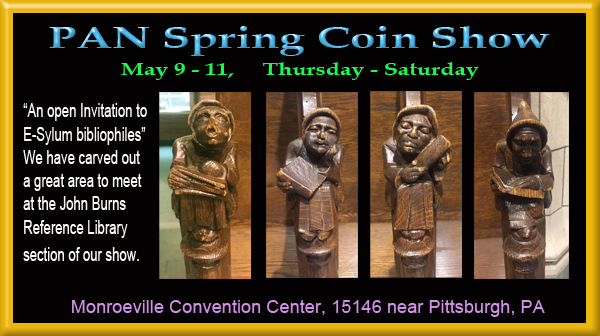
NOTES FROM E-SYLUM READERS: APRIL 28, 2019
On First and Second Editions
Malcolm Johnson writes:
It was very amusing reading the article about Mr. Highfill's book donation to the Burns Library. I was actually planning on donating a first edition of his Encyclopedia at the PAN show next month. Oh well, I guess I will Just put it on the giveaway table or offer it to a PAN member who wants to expand their personal library. Thanks for your efforts, the E-Sylum is an absolute treat each Monday morning.
As a book collector, I'm happy to have all editions of a work, even if it has been superseded by an updated edition. Sometimes useful information has been dropped to make room for something else, and other times seeing both editions can make it clear that older information has since been questioned. -Editor
To read the earlier E-Sylum article, see:
HIGHFILL MAKES BURNS LIBRARY BOOK DONATION
(https://www.coinbooks.org/v22/esylum_v22n16a07.html)
Numismatic Sights of of New York City
Paul Bosco of New York City submitted these thoughts regarding my Numismatic Diary articles in the last issue. -Editor
I doubt it was conscious on your part, but you captured A LOT of what NYC is about. It is a city for walkers, where it is a challenge to go 50 feet without observing something or someone worthy of an essay. (Like an old bank building, as described in another article in the issue).
You did not hit any coin stores, even though there are five? --Stack's-Bowers, Heritage, Brigandi, Royal Athena, Bosco--? in a 15-minute walk along 57th Street. Where you DID go? --ANS, Medialia & The Strand Bookstore--? were pretty savvy picks, but there is always more to explore. I've lived in Manhattan for 45 years, and still feel I will not begin to scratch its surface until I'm 10 years into retirement.
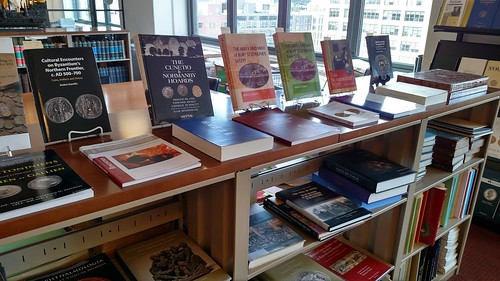
American Numismatic Society Library
You mentioned walking on the HighLine, but did not explain that it is a thin, 1.45 mile park made out of an elevated Penn Central freight railway (essentially abandoned ca.1980) that snakes its way between buildings (& bedrooms!) from 14th Street to 34th. 5 million visitors a year.
You also did not mention that, food and lodging aside, almost everything you did was FREE. I look forward to the horde of E-Sylum readers who are about to follow your lead and descend on us.

Medialia Gallery
Thanks, Paul. I greatly enjoyed my whirlwind trip and only wish I'd had time to squeeze in more numismatic adventures. I agree that New York has an endless bounty of sights and experiences of all kinds. I'll look forward to my next visit. -Editor
To read the earlier E-Sylum articles, see:
WAYNE'S NUMISMATIC DIARY: APRIL 21, 2019
(https://www.coinbooks.org/v22/esylum_v22n16a25.html)
MEDIALIA GALLERY VISIT (https://www.coinbooks.org/v22/esylum_v22n16a26.html)
Herb Erlanger and the ANS
Speaking of the American Numismatic Society library, Paul Bosco adds this about Herb Erlanger:
It's nice that he gave 275 books to the ANS. I guess he did not carry a grudge to his grave. I recall ANS Librarian Frank Campbell seriously losing patience with Herb, who talked in a fairly loud voice in the library. I would presume he was just an octogenarian talking loud enough to hear himself. He may be best remembered for the auction of his landmark collection of Nuremberg numismatica, which spanned more centuries of material than his writings. I forget who the auctioneer was - some German firm.
To read the earlier E-Sylum article, see:
HERBERT JUSTIN ERLANGER (1905-1988)
(https://www.coinbooks.org/v22/esylum_v22n16a19.html)
Tommy Harris, Future ANA President
In this note forwarded for publication by Jeff Garrett with permission from the author, Kelly Harris writes:
You recently met my son, Tommy at the Whitman Coin Show in Baltimore on March 2. You were kind enough to send him an autographed copy of your book, ‘100 Greatest US Modern Coins’ which is now amongst his prized possessions.
His elementary school has “Career Day” today and I wanted to let you know that he went as the “future” President of the ANA.
Many thanks for your support of my son’s interest in numismatics. It means a great deal to him and to me.
Warmest Regards -
Kelly Harris
(Tommy’s Mom)
Thanks to Tommy, his Mom Kelly and Jeff for this delightful look into the future. -Editor
The Conversion from Bronze to Zinc Cents
Dave Lange writes:
In an effort to downsize my clutter I've been going through the material I assembled for my three Complete Guide books back in the 1990s. A lot of it is not worth saving, but I did come across some interesting correspondence about the cents of 1982 that was sent to me by Christopher Lane. It was a timely discovery, since I was quizzed recently about the source of my information regarding the dates that appeared in my Lincoln Cent book for the conversion from bronze to zinc cents.
Dave attached scans of the letters and copied Len Augsburger of the Newman Numismatic Portal. Dave has agreed to allow NNP to host these documents. -Editor

Summary of 1982 Cent Strikings
To view the material on nNP, see:
https://nnp.wustl.edu/Library/Archives?searchLetter=D
Mitula Stamp and Coin Company
An E-Sylum reader writes:
The article on coin and stamp departments in department stores brings back fond memories for my youth. I'm 74 now. In the Neil Esperson Building in downtown Houston was the Mitula Stamp and Coin Company. I can't remember the years (mid to late 1950s?), my mother would take me to this shop. A Mr. Bingham, I believe (Mr. Mitula's son in law?), always waited on us. For some reason, luck!, Mr. Bingham helped us build uncirculated sets of Jefferson Nickels, Roosevelt Dime, Franklin Halves and short sets of Mercury Dimes, Washington Quarters and Liberty Walking Halves. 20/20 hindsight. IF ONLY we had sprinkled in some type coins in unc! But at least we were not filling holes with low grade coins! And fortunately I didn't go down the stamp path. I still have everything but the the Washington Quarters which I sold.
Wouldn't we all love a time machine to travel back and make some timely purchases! Thanks for the memories. -Editor
To read the earlier E-Sylum article, see:
NOTES FROM E-SYLUM READERS: APRIL 21, 2019 : Gimbels Coin Department Ephemera
(https://www.coinbooks.org/v22/esylum_v22n16a12.html)
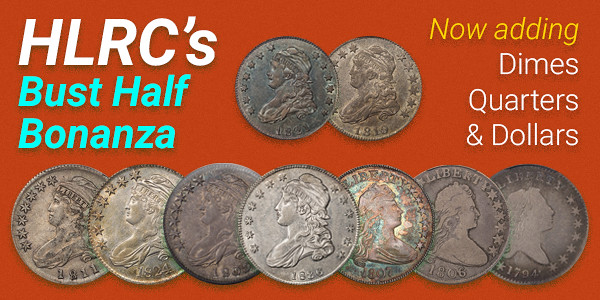
THE RICHARD GIMBEL AERONAUTICAL COLLECTION
Harry Waterson writes:David Lange’s piece on Robert Friedberg jogged my memory. Gimbels not only contributed to coin collecting at the commercial level but one of the sons of the Gimbel Brothers amassed one on the great aeronautical collections in the US. I do not think Friedberg had any influence on Richard Gimbel who had worked at Gimbels until 1935. Friedberg did not start at the department store until 1947 according to my research but they were contemporaries so maybe they knew each other.
Harry attached a brochure with the story of the collection. Thanks! Here's an excerpt. -Editor
 Numbering more than 20,000 items, this prestigious collection is the result of dedicated effort on the part of Colonel Richard Gimbel.
Unrivaled in the world, it documents the history of mankind's dreams of flight from the earliest times to the advent of powered flight early in
the twentieth century. Colonel Gimbel willed his collection to the United States Air Force Academy.
Numbering more than 20,000 items, this prestigious collection is the result of dedicated effort on the part of Colonel Richard Gimbel.
Unrivaled in the world, it documents the history of mankind's dreams of flight from the earliest times to the advent of powered flight early in
the twentieth century. Colonel Gimbel willed his collection to the United States Air Force Academy.
The Gimbel collection is extraordinarily diverse. Five-thousand-year-old cylinder seals carved from semi-precious stones depict mankind's earliest dreams of flight. Rare coins and medals commemorate the great aviators and their achievements. Sheet music records aerial melodies. More than 5,000 books address every aspect of aviation, including early experiments with wings, balloon ascents, the first parachutes, rocketry, and detailed accounts of historic flights.
Montgolfier and Wright Medals
These medals honor Joseph and Etienne Montgolfier and Wilbur and Orville Wright. In June 1783, the Montgolfier brothers were the list to give a
public demonstration of a hot air balloon ascent. In December 1903, the Wright brothers were the first to make a powered flight in a heavier-than-air
machine.
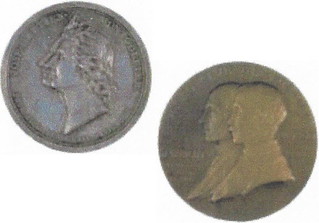 A beautifully illustrated overview of the collection, The Genesis of Flight, was published by The Friends in 1999.
A beautifully illustrated overview of the collection, The Genesis of Flight, was published by The Friends in 1999.
Richard Gimbel collected more than just aeronautics literature, and he collected on a grand scale. He's more background from Wikipedia. -Editor
After taking a year off to travel the world, Gimbel worked for his family's business overseeing the construction of their Philadelphia store in 1927 and then as a vice president of Gimbel Brothers Company. In 1935, he left Gimbel Brothers after a dispute with his cousin Bernard Gimbel over strategy and moved to Miami where he profitably ran a Richards store. In 1940, he joined the Army Air Corp as a lieutenant colonel and with the Eighth Air Force as a pilot during World War II. In 1951, he was appointed Professor of Air Science and Tactics at Yale University. In 1953, he retired as full colonel in 1953 and stayed with the library as curator of aeronautical literature.
In 1942, during the London blitz, he visited a bombed-out bookstore in London and purchased a trunk of aeronautical books. Thereafter, he was a voracious collector of books specializing in Charles Dickens, Edgar Allan Poe, and Thomas Paine in addition to anything aeronautical. He purchased the Philadelphia home of Edgar Allan Poe, filled it with his non-aeronautical collection, and presented it to the city of Philadelphia as the Edgar Allan Poe House and Museum. Upon his death, he had over 100,000 items in his aeronautical collection.
To read the complete article, see:
Richard Gimbel (https://en.wikipedia.org/wiki/Richard_Gimbel)
To read the earlier E-Sylum article, see:
NOTES FROM E-SYLUM READERS: APRIL 21, 2019 : Gimbels Coin Department Ephemera
(https://www.coinbooks.org/v22/esylum_v22n16a12.html)

MAUNDY MONEY MUSINGS
Nick Graver of Rochester, NY submitted these thoughts on Maundy coinage. Thanks. -Editor
Peddling Your Maundy Coins
There is much talk about the coins and even about the ceremony but little is ever said about how they get on the numismatic market.
A British coin dealer once told me that he has a representative stationed at the site of the ceremony who buys the coins immediately from the recipients. There were standing orders for the coins and they never did go home with many of the recipients.
That was decades ago, and one wonders if the procedure is much different these days.
Don't Clean Them
A good friend had cousins still living in Great Britain who had two early Maundy sets of four coins in their beautiful leather box cases. They had
been handed down in the family. Knowing he was a collector they finally decided to send them over as a Christmas present one year. Sadly, they
polished them up as they were toned from the years of storage.
And Don't be Too Tall
We once stayed in a British bed and breakfast on a self-drive vacation and our hostess was so proud of her son who had been selected to serve in the
Maundy Ceremony that year. He and a girl classmate had represented all the Children in the United Kingdom, acting out their duties in the
ceremony.
She related how they were selected on the basis of Scholarship, Citizenship, and recommended by their teachers and fellow students. The high point of their young lives. And she happened to mention that he was the right height!..
I just had to ask how his height had any bearing on his qualities of scholarship or citizenship?
She replied that tall children were not eligible to be considered for this honor, lest they loom above the Queen in the photos being taken!
Having once been a tall and gangly youngster, I felt so sorry for those being ruled-out of the event because of height. I'm sure the photos were neat and orderly regarding the posed participants.
Here's a photo from the recent Maundy ceremony showing the Queen with four (short) children. -Editor
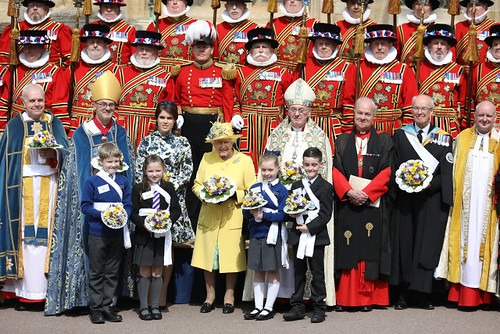
To read the earlier E-Sylum article, see:
QUEEN ELIZABETH II DISTRIBUTES MAUNDY MONEY
(https://www.coinbooks.org/v22/esylum_v22n16a21.html)

VOCABULARY TERM: CLICHÉ
Dick Johnson submitted this entry from his Encyclopedia of Coin and Medal Terminology. Thanks. I added the below image. Although it may not meet Dick's strict definition, it does show what these generally look like. -Editor
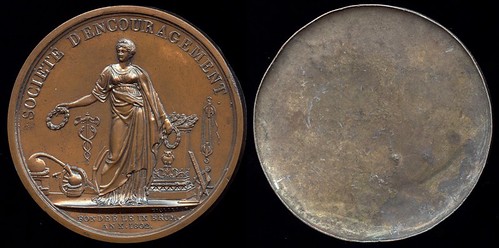
1802 France - Napoleon - Societe d'Encouragement by Pierre-Joseph Tiolier - A Cliché. of the medal
Cliché One-sided medallic items made by placing two thin blanks between a pair of dies and striking in a press. Originally intended for the artist's cabinet, or for museums, clichés mounted side-by-side exhibit both sides of a medal at a glance. When properly made clichés will exhibit suction or ghosting on the two interface surfaces, often the strongest device or feature of the two sides – as an obverse portrait – will form the greatest ghosting evidence.
At first clichés appear the same as uniface medals, in that both have design on one side and are basically blank on the other. However clichés differ from uniface medals in how they are made; clichés always have two thin blanks struck simultaneously, uniface medals are struck with a single blank between two dies, one of which is a jack die or blank die.
Keying Clichés. Often when clichés of multiple struck medals are made, they will be "keyed" – to be able to join back together the two blanks exactly to be struck a second or subsequent time (an aid for positioning the two blanks in the medal press for each blow). Blanks are keyed by punching one blank with a letter or figure punch (a hand punch will do, usually at the corners of an imaginary triangle or square) on the interface surface; metal from the opposite blank flows into these punch cavities. This will serve as a key to properly position the mated blanks if they need to be placed in the press again or to identify die alignment.
Very thin uniface medals are often called clichés (albeit incorrectly). However, true clichés can always be distinguished by the ghosting – and the possible evidence of the keyed punch mark – on the interface surface. An early example of a cliché is a George III Laudatory Medal of 1770 mentioned in Brown (140).
The word is French and is pronounced klee-shay. Reportedly the word was named after the sound the press made in striking the two pieces at once.
Looking for the meaning of a numismatic word, or the description of a term? Try the Newman Numismatic Portal's Numismatic Dictionary at: https://nnp.wustl.edu/library/dictionary
Or if you would like a printed copy of the complete Encyclopedia, it is available. There are 1,854 terms, on 678 pages, in The Encyclopedia of Coin and Medal Technology. Even running two a week would require more than 19 years to publish them all. If you would like an advance draft of this vital reference work it may be obtained from the author for your check of $50 sent postpaid. Dick Johnson, 139 Thompson Drive, Torrington, CT 06790.
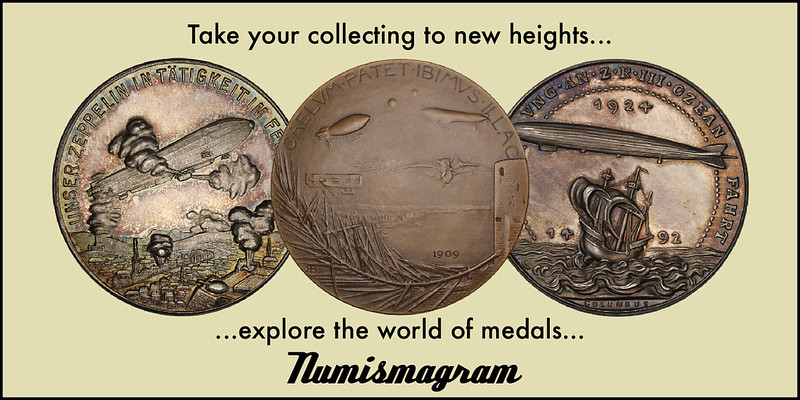
REV. FREDERICK MAYER BIRD (1838-1908)
 Rev. Frederick Mayer Bird (1838-1908), was born June 28, 1838, at Philadelphia, Pennsylvania, son of Robert Montgomery Bird (1806-1854), a
dramatist and novelist, and Mary Mayer Bird (1809-1868).
Rev. Frederick Mayer Bird (1838-1908), was born June 28, 1838, at Philadelphia, Pennsylvania, son of Robert Montgomery Bird (1806-1854), a
dramatist and novelist, and Mary Mayer Bird (1809-1868).
Like all students studying Latin and ancient history since the early colonial period he was introduced to ancient numismatics by his schoolmasters.
In 1857, he graduated the University of Pennsylvania.
In 1860, he graduated Union Theological Seminary, New York.
On September 3, 1861, he was ordained a Lutheran minister and served at Rhinebeck, New York.
During the Civil War he served as a chaplain in the U. S. Army from 1862 - 1863.
In 1869, Bird was ordained a priest
From 1870-1874, he served as Rector at Spotswood, New Jersey.
He consigned coins to an auction sale held by Bangs - March 12, 1873.
He wrote about Roman Emperors and their families depicted on coins in his widely acclaimed article : "In A Cabinet" Lippincott's Magazine, February (1878)
From 1881-1886, he was professor of Psychology, and Rhetoric at Leheigh University.
He was a corresponding member of the ANS since May 15, 1883.
He was a frequent correspondent of the Chapman Brothers buying and selling, bidding on their sales and using them as bidding agents for other sales catalogued by other coin dealers or auction houses.
In 1886, he published "Recollections of Mickley," American Journal of Numismatics (1886) : 16
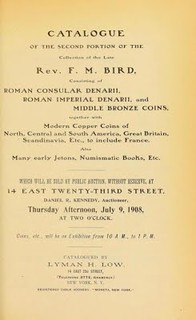 From 1893-1898, he was editor of Lippincott's Magazine.
From 1893-1898, he was editor of Lippincott's Magazine.
He was an aficionado on handwriting, calligraphy, and penmanship and wrote a series of articles in the Independent, a New York weekly magazine.
In the April 1903 issue of The Numismatist he is listed as ANA Member No. 501.
He died at South Bethlehem, Pennsylvania, on April 2, 1908.
Lyman Haynes Low auctioned off the remainder of Bird's coin collection in three auctions held June 8, 1908, July 9, 1908, and September 4-5, 1908.
To read the complete article, see:
BIRD, REV. FREDERICK MAYER
(https://sites.google.com/a/numismaticmall.com/www/numismaticmall-com/bird-rev-frederick-mayer)
The entire inventory of the Lupia Numismatic Library is for sale. Individual items will be available before the remaining archives are broken up into parcels sold at philatelic auctions in the U. S. and Hong Kong. Check NumismaticMall.com frequently as dozens of new items with estimates will be posted daily until everything is sold.
All inquiries will be given prompt and courteous attention. Write to: john@numismaticmall.com .
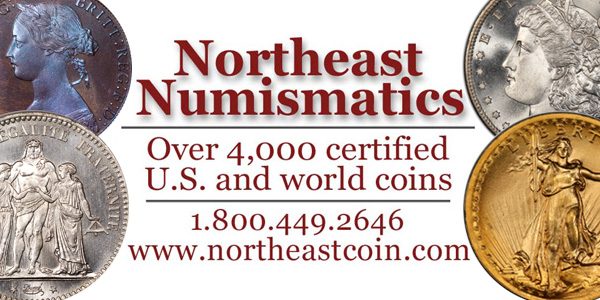
DR. GEORGE FULD ACQUIRES CIVIL WAR TOKENS
While looking for other things I came across an article published by Dave Bowers on CoinWeek back on November 6, 2017. It quotes reminiscences by Dr. George Fuld on his acquisition of U.S. Civil War tokens and his writing of standard works on the subject. Here's a short excerpt - be sure to read the complete article online. -Editor
At the show I met David Bullowa, who sold me dozens of different Civil War tokens at 25 cents each. At that time, my father had no interest in coin collecting. Over the next year or so he joined me in enjoying these tokens. In 1949, Bullowa acquired the 4,000+ collection of Civil War tokens formed by Joseph Barnet and advertised in The Numismatist. He wanted $2,500 for the collection, a “huge” sum for me at the time. I proposed that Bullowa buy my United States collection of cents complete from 1794 to date (except the 1856 Flying Eagle) as partial payment in the amount of $900. My father agreed to make up the difference in cash. We packed up our collection and drove from Baltimore to Philadelphia to make the trade.
I aggressively continued to buy Civil War tokens, including small collections, and offered duplicates for sale. In 1951 my father and I bought the D.C. Wismer Collection of Civil War tokens, consisting of 11,000 pieces, from the New Netherlands Coin Company, at six cents each.
The other major collection we acquired was Henry Guttag’s collection of about 5,000 pieces in 1958. It had first passed to Max Schwartz of New York City, who retained a hundred or so pieces, then to John Zug of Bowie, Maryland, who advertised it, but no buyer came forth. From there it went to New Netherlands, then to us. We traded with the few serious Civil War token collectors such as William Fayerweather, Clif Temple, Jim Curto, Ray Haggenjos, Charles Foster, Lionel Rudduck, Wayne Rich, Martin Jacobowitz, and Otto Kersteiner.
To read the complete article, see:
Some Comments on Civil War Tokens & an
Appreciation of George Fuld (https://coinweek.com/coins/medals-and-tokens/comments-civil-war-tokens-appreciation-george-fuld/)
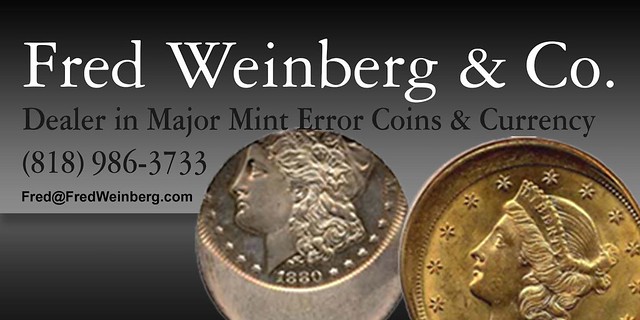
CANADIAN COIN COLLECTOR GEORGE COOK
CBC News published a nice profile of collector George Cook and his landmark Canadian coin collection. Here's an excerpt. -Editor

George Cook with his wife Margaret
George Cook had three passions in his life: his family, his country and his coins.
Cook immigrated to Canada in 1951 from Germany, fleeing "the tragedy of war in Europe," his longtime friend says.
"He was able to combine the passion for coins and his love for Canada in building this incredible set," friend Cris Bierrenbach told the Calgary Eyeopener on Friday.
[He] set out in this wonderful journey to build the most important and the most significant collection of Canadian coins ever assembled."
Cook carefully researched the coins and frequently spoke with his collecting friends. Sometimes he paid over market value in order to obtain one that was missing in his collection.
"It was a wonderful thing to see. He enjoyed them fully through his last days on this earth," Bierrenbach said.
The article highlights the rarest coins in the collection, the 1911 silver dollar, the 1921 half dollar, and the 1936 dot cent. -Editor
To read the complete article, see:
Canada's rarest coins: Calgary businessman's massive collection heads to auction
(https://www.cbc.ca/amp/1.5112540)
To read the earlier E-Sylum article, see:
HERITAGE TO OFFER COOK CANADIAN COIN COLLECTION
(https://www.coinbooks.org/v22/esylum_v22n10a18.html)
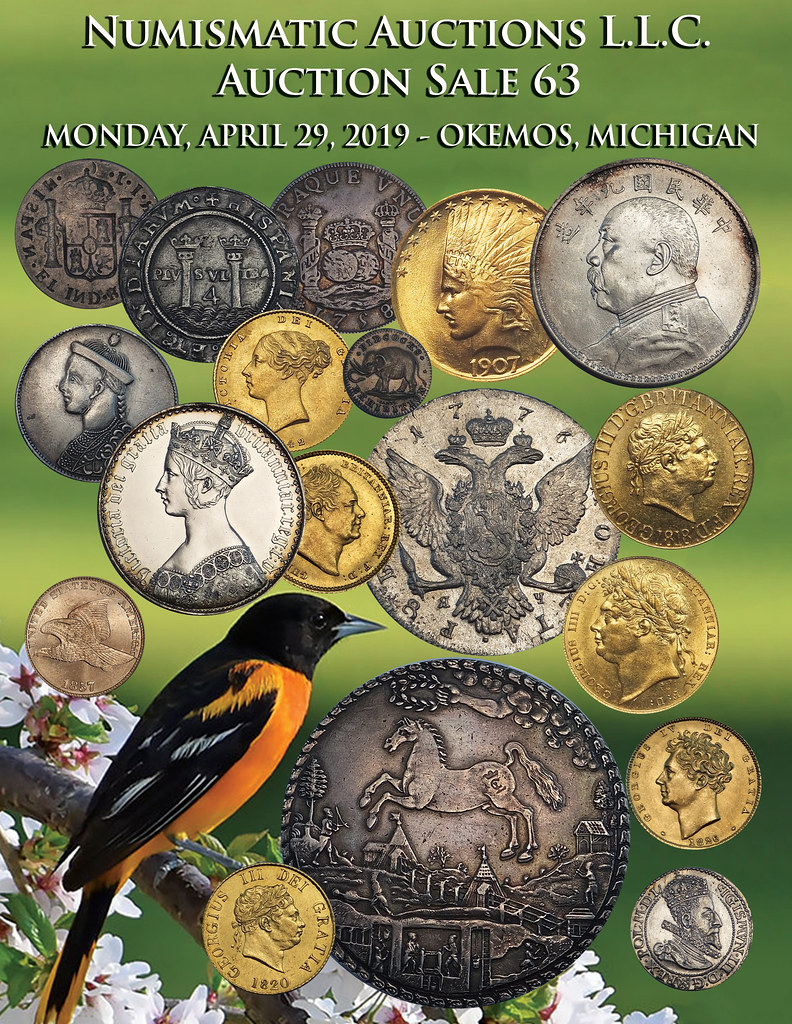
INTERVIEW: RICHARD LOBEL OF COINCRAFT
Martin Kaplan forwarded this Coin Update article by Michael Alexander interviewing Richard Lobel of Coincraft in London. Thanks. The main topic is the secondary market for Mint products. Here's an excerpt - be sure to read the complete article online. -Editor
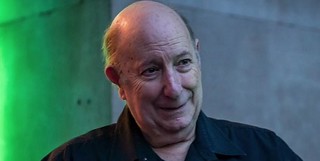 As a leading voice in the field of the coin world’s secondary market, I had an opportunity to ask Richard Lobel, owner/director of
Coincraft in London, what he believed the shape of the secondary market is currently in and if there should be cause for concern. The company he and
his wife Claire run has been rightly described as a numismatic department store and is just opposite the British Museum, which has become a landmark
for coin collectors both in the UK and for those who visit London from far and wide. Next year, Coincraft celebrates the 65th anniversary of its
founding, which the management say they are very much looking forward to.
As a leading voice in the field of the coin world’s secondary market, I had an opportunity to ask Richard Lobel, owner/director of
Coincraft in London, what he believed the shape of the secondary market is currently in and if there should be cause for concern. The company he and
his wife Claire run has been rightly described as a numismatic department store and is just opposite the British Museum, which has become a landmark
for coin collectors both in the UK and for those who visit London from far and wide. Next year, Coincraft celebrates the 65th anniversary of its
founding, which the management say they are very much looking forward to.
Michael Alexander: Many collectors visiting London will be very familiar with Coincraft since your company has had such an unmissable presence and impact in British Numismatics and has been a pivotal driving force. It’s safe to say that what you do not know about the secondary market frankly isn’t worth knowing. So, what do you believe is the main ailment of the secondary market at the moment? What is its biggest failing or concern for you?
Richard Lobel: The secondary market in this country, and in other countries, is not working because of the word “too.” Too many products being issued, prices are too high, and there are too few collectors for the material. That, combined with the lack of support from mints in the secondary market, means that collectors have nowhere to go once they decide to sell them. Quite simply, the mints do not support the products that they have sold. Their customers may have bought from them because they are a mint, but once these collectors go to sell, they realise that no mint will re-purchase the items. The secondary market is made up of the dealers who really don’t want a mint’s overpriced issues. They do not have the facility or space to handle quantities. Their main business is normally older numismatic items, real collector pieces.
MA: I’m sure you’ve seen the familiar scenario of collectors believing they made smart investments with purchases directly from mints and marketing companies which ends up disappointing collectors and puts them off coin collecting permanently. This also leaves the activity with an undeserved reputation. Can you share your experiences having handled these kinds of visitors to your shop over the years?
RL: We know from our own experience that there are a number of mints and marketing companies who suggested to their own customers if they have something to sell which was bought from them, then contact Coincraft! Auctions list these items at melt value or less, and dealers are tired of being called crooks when they make a legitimate offer on material which is based on the metal content, and we coin dealers are not to blame. The mints and marketing companies who sell collector’s pieces, hinting that they’re investment, are the ones who are in the wrong. We did not sell you a new crown-sized silver coin and I use the term “coin” advisedly, with £7 ($9) worth of silver for £80 ($104) or more. The mints do not want to get involved once they have sold the coins so they are responsible for killing the market. I say to them: “If your items are so great, why don’t you buy them back?”
To read the complete article, see:
Is it time to re-think the secondary coin market?
(http://news.coinupdate.com/is-it-time-to-re-think-the-secondary-coin-market/)

STEPHEN ALBUM AUCTION 34 MAY 23-26, 2019
Here's the press release for Auction 34 from Stephen Album, which closes next month. -Editor
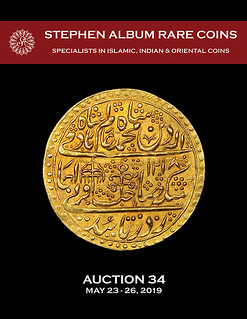 Stephen Album Rare Coins will hold its Auction 34 on May 23-26, 2019 at its offices in Santa Rosa, California. The auction is made up of
3,000 lots of coins from all time periods, including ancients, early Islamic, Chinese, General World, and Indian Coins. The session on May 26 is an
internet bidding session for 200 lots of Numismatic Literature.
Stephen Album Rare Coins will hold its Auction 34 on May 23-26, 2019 at its offices in Santa Rosa, California. The auction is made up of
3,000 lots of coins from all time periods, including ancients, early Islamic, Chinese, General World, and Indian Coins. The session on May 26 is an
internet bidding session for 200 lots of Numismatic Literature.
One of the areas that strong bidding is expected to take place is in the Chinese coin section. In that section bidders will find many nice dollars, high grade minors, and also a rare Tibetan pattern.
The Indian coin section also contains many choice coins, including a number of gold mohurs that are graded Mint State by third-party grading companies. A true highlight of the sale is a gold nazarana mohur from the Mughal Empire. This special issue is struck on a broad flan for presentation purposes, and is of the utmost rarity. This coin is featured on the auction catalog cover.
It should also be noted that over 900 General World coins are included in the sale from all continents (Europe, North and South America, Africa, Asia, Australia). The firm is generally regarded as having strong offerings in early Islamic, Indian and other Asian coins. However, a very significant portion of the sale is in coins in other categories. A few highlights include an Oliver Cromwell crown graded MS63 by PCGS, as well as an Egyptian 3-medal set from the time of King Fuad which is of the utmost rarity.
Some highlights from the sale follow:

Lot 2524: MUGHAL: Shah Alam II, 1759-1806, AV nazarana mohur (10.69g), Shahjahanabad, AH1218 year 46, KM-721, Stevens- 8.2, 34mm, with mint epithet Dar al-Khilafat, struck in gold, NGC graded MS63+, Certificate #4668521-001.
Nazarana, Nazrana or Nazars were presented to the king on special occasions. People, who wanted to present nazars, would order and buy the special
struck coins from the mint. For the nazar or nazarana coins, an extra fee had to be paid as the production required extra work. For the mint, it was
a nice extra income and almost all the nazarana coins were returned back to the mint again shortly thereafter. This is only the second example
offered for public sale that we are aware of and likely the finest known example!
Estimated at $60,000 to $80,000

Lot 877: GREAT MONGOLS: Töregene, 1241-1246, AR 10 dirhams (28.52g), al-Kurraman, AH641, A-—, within a square, the Abbasid
caliph: al-musta'im / billah amir / al-mu'minin, with floral ornaments in each of the four marginal segments // also in square, duriba hadha
/ fi'l-balad / al-kurraman, with the date arranged in the margin: bi-tarikh sana / ihda / (wa) arba'in / wa sitmi'a, one small area of
weakness, VF-EF, RRRR, ex M.H. Mirza Collection.
Estimated at $18,000-$22,000

Lot 1697: EGYPT: Fuad I, as King, 1922-1936, SET of 3 extremely rare silver Art Deco style "Egyptian Royal Tour " medals in a
period plush case, 1) 72mm, Medal for the Official Visit to Rome 1927, by Aurelio Mistruzzi (189g); uniformed bust right of Fuad wearing fez, name
and titles in Arabic around // VISITA VFFICIALE DE S. M. FVAD I RE D'EGITTO ALL' ITALIA II-IV AGOSTO MCMXXVII legend around Naked River
Godesses of the Nile (NILVS) and Tiber (TIBER) standing facing; beyond to either side, the Sphinx and the Colosseum. Casolari V/98 var 2) 72mm, Medal
for the Official Visit to Belgium 1927 by S.E. Vernier and G. Devreese (173g); uniformed bust right of Fuad wearing fez, name and titles in Arabic
around // EGYPTE / BELGIQUE above hieroglyphic tablets, Sphinx and Belgic Lion together below; in exergue, VISITE OFFICIELLE / DE SA MAJESTE FOUAD I
/ ROI D'EGYPTE / A LA BELGIQUE / XXVI-XXVIII OCTOBRE / MCMXXVII in cartouche. Casolari -. 3) 72mm, Medal for the Official Visit to Czechoslovakia
1929, by S.E. Vernier and Lad Saeud (175g), uniformed bust right of Fuad wearing fez, name and titles in Arabic around // Coat of arms of Kingdom of
Egypt and Czechoslovakia above personifications of both nations holding hands, both atop floral columns, VISITE OFFICIELLE / DE SA MAJESTE FOUAD I /
ROI D'EGYPTE / A LA TCHECOSLOVAQUIE / XXVI-XXVIII JUIN / MCMXXIX between the two figures, struck at the Monnaie de Paris (the Paris Mint) These
silver issues are unpublished in the standard references and are likely unique with period case, all mint state, set of 3 silver medals, RRR.
Estimated at $10,000 to $20,000
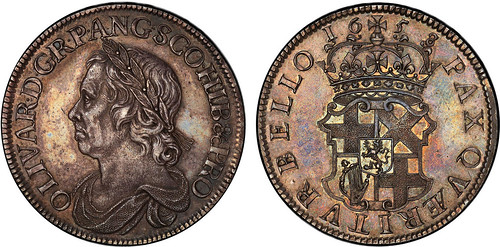
Lot 1469: GREAT BRITAIN: Oliver Cromwell, Lord Protector, 1653-1658, AR crown, 1658/7, KM-D207, S-3226, dies by Thomas Simon, struck at the
Frenchman Pierre Blondeaus' mint at Drury House, London; OLIVAR D G R P ANG SCO HIB & PRO (Oliver, by the Grace of God, Protector of the
Republic of England, Scotland and Ireland), laureate and draped bust of Cromwell left // PAX QVAERITVR BELLO (The peace is acquired through war),
crowned garnished coat-of-arms, HAS NISI PERITVRVS MIHI ADIMAT NEMO (let no-one remove these letters from me, under penalty of death) on edge in
relief, a lovely example of this popular type! PCGS graded MS63, R.
Estimated at $8,000 to $10,000
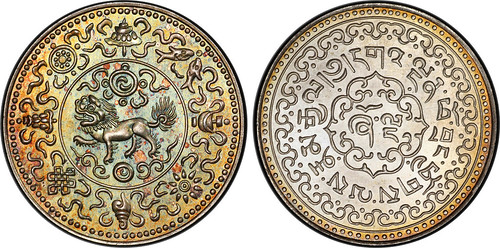
Lot 2260: TIBET: pattern 5 sho, ND (1929-30), KM-PnA12, YZM-497, Autonomous Tibetan issue, , PCGS graded Specimen 65.
In older editions of the Krause Standard Catalog of World Coins, this coin was listed as a regular issue (as Y-32), but it is now believed that
it is a pattern coin struck between 1928 and 1930 in the Dode mint with the imported coining presses from the British firm Taylor & Challen. This
is an absolutely fantastic example of this rare Tibetan pattern silver type. This is the finest graded by either NGC or PCGS!
Estimated at $8,000 to $10,000
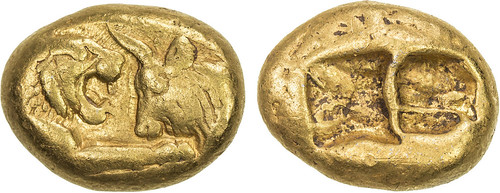
Lot 13: LYDIA: Time of Kroisos, 561-546 BC or later, AV stater (10.72g), Sardes mint, S-3411, Boston MFA-2068; Carradice, pl. X, 2;
Dewing-2426, heavy series, confronted foreparts of lion facing right and bull facing left, both with straight legs // two square incuse punches of
different sizes, VF, RR, ex Classical Numismatic Group Mail Bid Sale 60, lot 769.
Estimated at $5,000 to $7,000
Lot 2827: Literature: Calbeto de Grau, Gabriel, Compendio de Las Piezas de Ocho Reales; Volume I & II, San Juan, Puerto Rico,
1970, Volume I 355 pages, Volume II 378 pages, hardcover with blue decorated cloth binding, text in English and Spanish, Volume One is a
comprehensive study of the Eight Reales of Spain, Mexico, Central America, and South America, an index of the rulers of the time period, and a
listing of mints in alphabetical order, profusely illustrated, Volume Two is a comprehensive continuation of the mints, and a brief numismatic
history of the rulers from Ferdinand and Isabella (1474-1505) to Alfonso XIII (1886-1931), "This set is regarded by many as the definitive guide
to eight reales. It catalogs virtually every eight real coin ever minted and is richly illustrated with hundreds of photographs, " set of 2
volumes.
Estimated at $900 to $1,100
The firm is now taking consignments for its Auction 35 on September 12-13, 2019.
More information can be found on their website at www.stevealbum.com
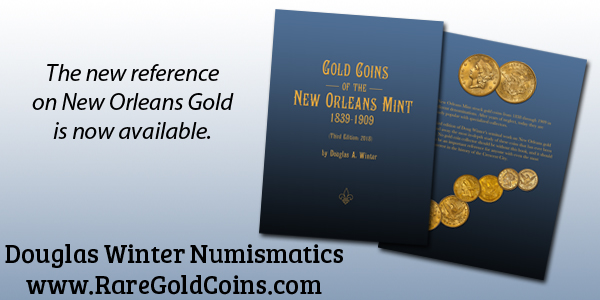
NUMISMATIC NUGGETS: APRIL 28, 2019
Here's a selection of interesting or unusual items I came across in the marketplace this week. Tell us what you think of some of these. -Editor
A Mint State Maximian

Maximian, 286-305 AD. Ticinum, c. 295 AD
AR Argenteus, 2.90g (18mm, 5h). MAXIMIA-NVS AVG, laureate head of Maximianus right / VICTORIA SARMAT, the four tetrarchs sacrificing over tripod
before city enclosure with six turrets.
Maximian was the military might to Diocletian’s political brain. Diocletian had just instituted the first tetrarchy where power is divided between four individuals. In this case it was two in the eastern and two in the western parts of the Roman Empire. Maximian was Augustus of the west from from 286-305 AD, while Diocletian oversaw the eastern front. Much of Maximian’s early reign was spent fighting battles. Once campaigns concluded in 298 AD he retired to Italy. He was pushed by Diocletian to give up his position in 305 AD and gave his office to Constantius, another individual from the tetrarchy.
A short time later Maximian chose to re-enter the political game when in 306 AD he took the title of Augustus again under his son Maxentius. After trying to depose his son in 307 AD he took flight and sought refuge in the court of Constantine (who was incidentally also his son-in-law). At the council of Carnuntum, Diocletian and his successor Galerius forced Maximian to renounce his imperial claim. Ever tenacious, Maximian once again attempted to place himself as Augustus when Constantine was out on campaign on the Rhine in 310 AD. This last spectacle was too much for Constantine and he was forced to kill himself on the emperor’s orders.
References: RIC VI 16b. Jelocnik 37. RSC 548d.
Grade: Pristine condition with deep rainbow toning. Mint State
This toned beauty is from Shanna Schmidt's email Newsletter #113. -Editor
To read the complete item description, see:
Maximian, 286-305 AD. Ticinum, c. 295 AD
(https://www.shannaschmidt.com/roman-empire/maximian-286-305-ad-ticinum-c-295-ad?rq=re1068)
Pan American Expo Token
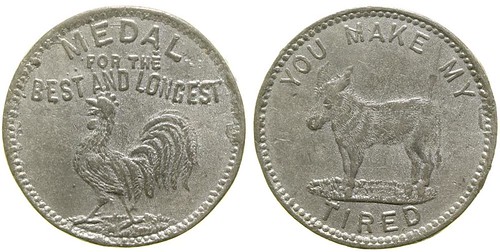
Description: Pan American Exposition Token, 30 mm, round aluminum. Obv: YOU MAKE MY / image of donkey / TIRED. Rev: MEDAL FOR THE BEST AND LONGEST / image of rooster Roger Merritt Token Collection Date: 1901 City/County: Buffalo State: New York
From the upcoming Holabird Western Americana sale, May 2019. -Editor
To read the complete lot description, see:
Lot 3618: Pan American Expo Token (101930)
(https://www.invaluable.com/auction-lot/pan-american-expo-token-101930-d9b4e0cac1)
Mother's Medal


Mother's day is coming up. Can anyone tell us more about this item? I don't think I've ever seen one. A well-worn piece, it looks like it was a big hit with someone's Mom, who wore it as a necklace for some years. -Editor
To read the complete lot description, see:
Lot 535: EARLY MOTHERS MEDA
(https://www.invaluable.com/auction-lot/-1-c-BEB45439BB)
Israel Telephone Tokens

Cool tokens. I like the telephone dial. That's where the term "dialing a number" comes from, kids. -Editor
To read the complete lot description, see:
Lot 358: [2] ISRAEL TELEPHONE TOKENS
(https://www.invaluable.com/auction-lot/-1-c-1344E348B0)

DLUGOSZ HERITAGE SALE SELECTIONS
Mike Dlugosz submitted these items from his consignment in this week's Heritage sale. There are ten lots but with just one image per lot, shown two at a time. -Editor
The following items from my collection are available in the Heritage weekly sale that closes this Thursday. This includes a few nice Conder tokens, three macabre German Medals of War and an attractive 1833 Liberia Cent from Wayte Raymond's collection.


Zetzmann 2161 1914. 28mm Copper NGC MS-64. Germania nude with scythe in hand, on horse leaping above advancing German military.
https://coins.ha.com/itm/germany/germany-empire-copper-world-war-i-propaganda-medal-1914-ms64-brown-ngc-/a/231918-61211.s
Zetzmann 4062 1914. Bronze 33mm NGC MS-64 (Rare). Three soldiers hang dead from an oak tree.
https://coins.ha.com/itm/germany/germany-german-colony-kiau-chau-jiaozhou-bronze-world-war-i-satirical-medal-1914-ms64-brown-ngc-/a/231918-61299.s


Arnold Zadikow Medal 1915. (Rare). Skeleton wades in the ocean netting ships. A metaphor for German submarine warfare
https://coins.ha.com/itm/germany/satirical-iron-uniface-medal-1915-au-70mm-5561gm-by-arnold-zadikow-a-wwi-period-medal-with-the-theme-of-the-dea/a/231918-61212.s
North Wales DH 1b. 1793. NGC MS-64 Red/Brown Prooflike. Druid halfpenny token.
https://coins.ha.com/itm/great-britain/great-britain-north-wales-copper-1-2-penny-token-1793-ms63-red-and-brown-prooflike-ngc-/a/231918-61239.s?


Middlesex DH 1151. 1793. NGC MS-64 Red. Isaac Newton farthing token.
https://coins.ha.com/itm/great-britain/great-britain-middlesex-copper-sr-isaac-newton-farthing-token-1793-ms64-red-ngc-/a/231918-61235.s
Middlesex DH 735. 1795. NGC MS-62 BN. Spence's British Liberty / Cain killing Abel.
https://coins.ha.com/itm/great-britain/great-britain-middlesex-copper-1-2-penny-token-1795-ms62-brown-ngc-/a/231918-61236.s
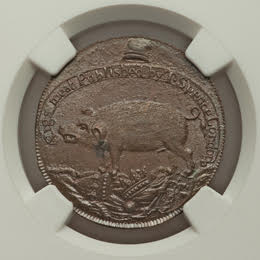
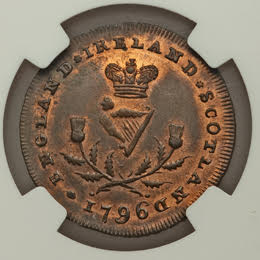
Middlesex DH 845. 1790s. NGC MS-62 BN. Spence's Pigs Meat / Honor.
https://coins.ha.com/itm/great-britain/great-britain-middlesex-copper-1-2-penny-token-nd-1790-s-ms62-brown-ngc-/a/231918-61237.s
Middlesex DH 899. 1796. NGC MS-64 BN. Spence's England, Ireland, Scotland United token.
https://coins.ha.com/itm/great-britain/great-britain-middlesex-copper-1-2-penny-token-1796-ms64-brown-ngc-/a/231918-61238.s
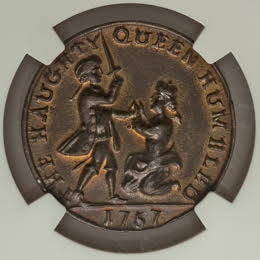
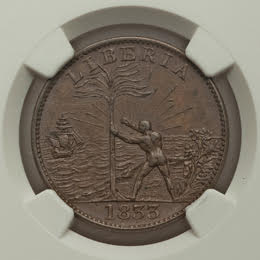
MI 684-402. 1757. Seven Years War Pinchbeck unlisted in Betts. Frederick the Great humbles the haughty queen, Maria Theresa.
https://coins.ha.com/itm/great-britain/great-britain-frederick-the-great-brass-victories-token-1757-ms61-ngc-/a/231918-61226.s
CH-2 Liberia Cent 1833. NGC AU-58 BN. Choice with original envelope from Wayte Raymond collection.
https://coins.ha.com/itm/liberia/republic-cent-token-1833-au58-brown-ngc-km-tn1-ch-2-large-ship-14-rays-12-leaves-nice-chocolate-example-includ/p/231919-35001.s

UTAH SPANISH COIN FIND PUZZLES PARK SERVICE
Some old coins found by a hiker in Utah have local officials puzzled. This article was located via The Explorator newsletter. -Editor

A hiker in southern Utah has found what appear to be old Spanish coins possibly dating back to the time of the conquistadors and perhaps even earlier, long before the voyages of Columbus.
The big question the National Park Service is trying to answer is: If they’re real, what are they doing in southern Utah?
"This is very exciting," said park service archaeologist Brian Harmon. "I’ve never seen anything like this in my career."
They’re being kept in Page, Arizona, in the archives of the Glen Canyon National Recreation Area. Museum technician Lisa Riedel carefully unwrapped them while wearing white gloves.
The two small coins — one about the size of a quarter and the other smaller than a dime — definitely give the appearance of being ancient. They don’t appear to be gold; they are slightly greenish in color, suggesting the presence of copper.
"They're very thin," Riedel said. "We're guessing one is probably silver and one is maybe copper."
According to Harmon, the coins were found in a popular tourist area that has at times been underwater in the decades after the Glen Canyon Dam was built in the 1960s.
"So what we're doing," Harmon said, "is reaching out to experts in old Spanish coins to learn, are these authentic? How old are they?"
If they are authentic, that would deepen the mystery: It’s a real puzzler to contemplate how old Spanish coins got to Utah and how they fit into the known history of European exploration.
Maybe I'm missing something, but as a numismatist it's no mystery that Spanish coins circulated throughout North America well into the mid 1800s. Trading for their size and silver content, they stayed in circulation long after they were originally minted. It would be fun to attribute them, but it wouldn't prove anything new about local history. -Editor
To read the complete article, see:
Ancient mystery or a
hoax? Archaeologists investigate rare find at Lake Powell
(https://www.ksl.com/article/46535893/ancient-mystery-or-a-hoax-archeologists-investigate-rare-find-at-lake-powell)
THE BOOK BAZARRE
FATE OF BRITAIN'S 1P AND 2P COINS UNCLEAR
There are conflicting reports today on the fate of Britain's lowly copper-plated 1p and 2p coins. The first article, forwarded by David Sundman from The Sunday Times states that the Treasury will announce this week that at least the 1p coins will remain in circulation. But a later report forwarded by Arthur Shippee from BBC News calls that notion premature. So stay tuned for further announcements. Meanwhile, here are excerpts from the articles. -Editor
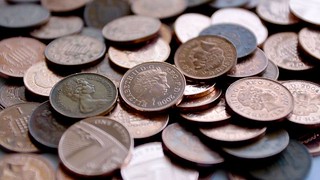 It is perhaps the most unpopular coin in Britain, clogging up your purse or pocket with very little value.
It is perhaps the most unpopular coin in Britain, clogging up your purse or pocket with very little value.
Yet plans to ditch the 1p coin have been scrapped after both charities and businesses objected.
It is understood the Treasury will announce this week that after a public consultation 1p coins are to remain in circulation.
The future of copper coins was thrown into doubt last year after the Treasury said it did not make economic sense to produce them and then launched the consultation.
About 60% of the coins are used in only one transaction before being stashed in piggy banks, thrown away or lost, says the Royal Mint, which produces the coins from copper-plated steel.
Campaigners had argued that losing coppers would have a damaging effect on smaller charities which rely on bucket collections.
There were fears, too, that removing copper coins from circulation would increase prices as retailers would round up to the nearest 5p, ending the infamous price tag ending with 99p. The half-pence coin was withdrawn from circulation in 1984.
The UK’s decision to preserve the pennies sets it apart from countries such as Norway, Israel, New Zealand, Brazil, Australia and Switzerland, which have all phased out their smallest denominations. The smallest euro coin is still one cent, although some countries have stopped minting them.
To read the complete article, see:
Look after
the penny: Treasury reprieves 1p coin (https://www.thetimes.co.uk/article/look-after-the-penny-treasury-reprieves-1p-coin-07cv5n2d8)
Chancellor Philip Hammond will this week rule on the future of 1p and 2p coins, a year after he called them "obsolete".
In his Spring Statement in 2018, a Treasury consultation about the mix of coins in circulation appeared to pave the way for the end of both of them.
A swift reverse by the Prime Minister's official spokesman declared there were no plans to scrap the copper coins.
The Treasury has declined to comment on a report that there will be a reprieve.
But it confirmed that "the result of the review will be announced shortly".
To read the complete article, see:
Philip Hammond to decide on future of 1p and 2p coins
(https://www.bbc.com/news/business-48082984)
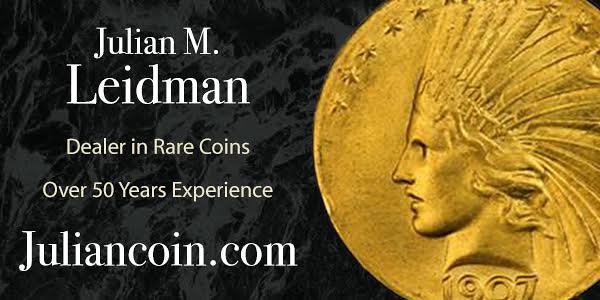
COUNTERMARKED COMMEMORATIVE BRAZILIAN COINS
In a Stack's Bowers blog article published April 25, 2019, Senior Numismatist and Cataloger Kyle Ponterio examines Imperial Brazilian silver coins repurposed as countermarked commemorative medals. -Editor
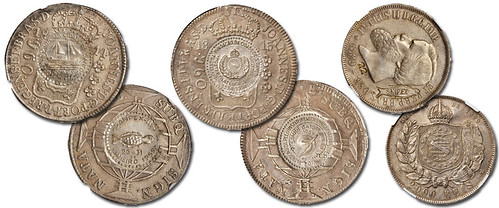
Imperial Brazilian Silver Coins Repurposed as Countermarked Commemorative Medals
This week’s featured numismatic treasures from our June Collectors Choice online (CCO) auction are coins that were repurposed into commemorative medals and ingots. The numismatic and philatelic communities were very active in Brazil during the 1930s, 1940s and 1950s and issued the first from this commemorative series for the numismatic exposition of 15 December 1937. It would be 12 years before the next commemorative, designed by Prof. Jorge G. Jessess, would be issued for the first SANPEX convention in December 1949. One hundred pieces were countermarked 101-200 with certificates of authenticity, plus 16 that were not numbered and two with the letter “P”, but no certificate, for a total of 118 pieces. The popularity of this series from its inception ensured that it quickly sold out. In fact the second issue was so popular that they created another medal for the same event, but of a different design and host coin. The second emission was quite different, although also quite popular. It was mailed to potential buyers for a price of 960 Reals (approximately $244) instead of being sold at the convention. The second emission displays a fish shaped indent with the word “SANPEX” in the center in the right field behind the bust and a number 1-100 stamped below the bust of an 1886-89 2,000 Reis. An additional 15 pieces were stamped with numbers that fell out of the sequence and an added letter “B” so as to not be confused with the original mintage. In addition each piece from this emission was accompanied with a certificate of authenticity, nearly all of which have been lost.
Brazil “SANPEX” 2,000 Reis # 22 NGC-MS61, Countermark UNC Standard.
The 1950s saw a significant increase of these issues for various events from 1950-57 such as the 400th anniversary of the founding of Sao Paulo and the SANPEX II convention, which were both issued in January 1955. These were designed by Roberto A.G.P Dessart and manufactured by Mr. Francisco Montini of Sao Paulo. They were produced in a similar fashion to the Mato Grosso (1818), Cuiaba (1820) and Minas Gerais (1801-10) issues which use bi-facial countermarks and have designs on both the obverse and reverse. The Historical and Geographical Institute of Sao Paulo arranged for the production of the 400th anniversary commemoratives to be sold at the Philatelic exhibition that took place January 6-15, 1955. It had a total mintage of 300 coins plus an additional 28 pieces. The SANPEX II convention that took place January 26-31, 1955, had an issuance of only 90 pieces.
Brazil “400th Anniversary of the founding of Sao Paulo” 960 Reis NGC-AU58, Countermark UNC Standard on an 1815-R 960 Reis
Brazil “SANPEX II A” 960 Reis NGC-AU58, Countermark UNC Standard on an 1814-R 960 Reis
Brazil has a long history of countermarking coins for various reasons, mostly to circumvent specie shortages, but in the case of these commemoratives it is more for nostalgia than anything else. The mintage figures and availability of these issues create a short series produced for more than a decade. The series is very collector friendly and easy to complete with a little patience.
To read the complete article, see:
Imperial Brazilian Silver Coins Repurposed as Countermarked Commemorative
Medals (https://www.stacksbowers.com/News/Pages/Blogs.aspx?ArticleID=3358)
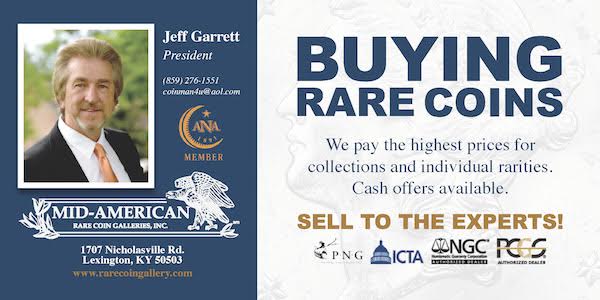
WWII VETERAN'S 1990 SOUVENIR CENT
This Charlotte Observer article describes a WWII veteran 1990 souvenir cent's journey back to the family of its owner in Fort Mill, SC. -Editor
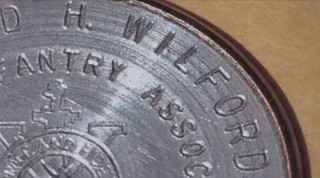 An extraordinary coin now belongs to a Fort Mill man who didn’t know it existed two weeks ago. A coin to remind him of the extraordinary
man who lost it.
An extraordinary coin now belongs to a Fort Mill man who didn’t know it existed two weeks ago. A coin to remind him of the extraordinary
man who lost it.
“We never knew it was there,” said Howard Wilford, showing off what he calls the patriotic penny bearing his father’s name. “We never knew it was in circulation. We never knew anything about it. We still don’t know much about it.”
Earlier this month, the Humboldt Chronicle published an article about a Vietnam veteran with a rare coin who was looking for the Wilford family. It detailed the penny’s trip from spare change in Alabama to Humboldt, a small city in western Tennessee.
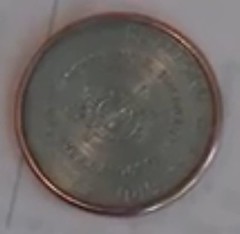 Nellie Thomas manages Waddell Gardens, an apartment community for seniors in Humboldt. She said she heard resident and part-time
maintenance worker Larry Sikes describe the coin he traded with his brother for a woodworked piece. On the coin, etched into what appears to be a
rear face insert is the name, rank and service of Sgt. Clifford Wilford.
Nellie Thomas manages Waddell Gardens, an apartment community for seniors in Humboldt. She said she heard resident and part-time
maintenance worker Larry Sikes describe the coin he traded with his brother for a woodworked piece. On the coin, etched into what appears to be a
rear face insert is the name, rank and service of Sgt. Clifford Wilford.
Thomas helped Sikes find information from several sources on the decorated World War II veteran, including the Veterans History Project. A packet of information included Wilford’s July 2017 obituary. The obituary named the funeral home. A couple of phone calls later and Sikes was talking to the Wilford family.
Howard Wilford doesn’t know much about his new possession. It lists his father as president of the 10th Infantry Association. The date on the typical front face of the coin is 1990. Howard Wilford guesses someone, most likely a jeweler, made the coins for some or all of the men in his father’s infantry regiment.
Service during the war was two-sided for Clifford Wilford. It got the poor, youngest of 13 children raised on a Kentucky farm an education when he returned. He became an electrician and worked in the Michigan auto industry. Clifford Wilford fought in the five major European battles, and was there from D-Day to the liberation of concentration camps. He won all kinds of accolades including the French version of the Medal of Honor, La Legion D’Honneur.

In a world of novelty, with coin collectors and historical intrigue, Howard Wilford smiles at the thought of the coin being worth much. Then again, it depends on who asks the question.
“It’s worth a penny,” he said. “But to me it’s priceless.”
To read the complete article, see:
Penny to ‘priceless’: How an unusual coin found its way
to Fort Mill (https://www.charlotteobserver.com/news/state/south-carolina/article229574819.html)
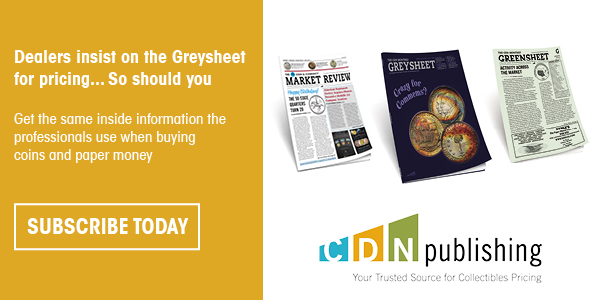
MODERN-DAY TIME BANKS
I'm fascinated by the labor exchange movement and its time-based paper money as promoted by Robert Owen in England in the 1830s and G. B. De Bernardi in the U.S. in the 1890s. We also discussed an unusual time-denominated token recently. Time banks are an idea whose time comes again and again as new generations rediscover the concept. I had no idea time banks were operating today, yet this April 26, 2019 Washington Post article describes several including one operating in Silver Spring, MD. Here's an excerpt - be sure to read the complete article online. -Editor
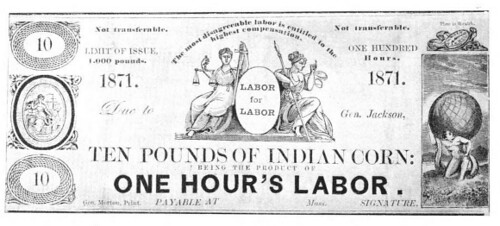
On a recent spring morning, Susan Alexander left her Maryland home, climbed into her Volkswagen Passat and drove about three miles to pick up two strangers. She battled rush-hour traffic on the Capital Beltway and George Washington Memorial Parkway before dropping them off curbside at Reagan National Airport.
She didn’t earn a dime for her trouble, and that was the point.
There and back, the trip took about 90 minutes — worth about $40 if Alexander, a retired government intelligence analyst, were an Uber driver. Instead, she’s a member of the Silver Spring Time Bank — one of more than 100 such exchanges around the world trying to build community by exchanging time credits for services instead of dollars and cents.
“I have time,” she said. “I like giving the gift of time to other people.”
Though some communities have experimented with local currencies, today’s time banks offer an alternative to the U.S. dollar powered by 21st-century technology. About 70 exist across the country — some with a few members, others with hundreds — to give value to work that members say often goes uncompensated in a traditional market economy.
Without money changing hands or shifting between virtual accounts, the airport drop-off was more like a coffee klatch than a taxi ride. Driver and passengers chatted about projects they’ve completed for the time bank, and no one raised an eyebrow when Mary said she likes “to avoid the conventional economy.”
“The beauty of this is that you make friends,” Mary Liepold said. “You don’t just get services.”
The Silver Spring Time Bank formed in 2015 and has about 300 members, said co-founder Mary Murphy. Last year, she said, 1,000 hours were exchanged for basic home repairs, dog walking, cooking and tailoring, among other services, without the exchange of money.
Edgar S. Cahn, an 84-year-old law professor at the University of the District of Columbia who had worked on civil rights and anti-poverty legislation in president Lyndon B. Johnson’s Justice Department, suffered a heart attack in 1980. He said doctors gave him two years to live, with “maybe two good hours a day.”
“I thought: What do I do with two good hours a day?” he said, having beaten doctors’ expectations by nearly four decades. “I have to teach people to value themselves.”
Cahn became a proselytizer for what he called the “time dollar” — a currency in which an hour of work is worth an hour of work, whether it’s performed by a maid, a mechanic or a mechanical engineer. In 1995, he founded the D.C. nonprofit TimeBanks USA, which developed the software used by many time banks around the world. (The organization charges time banks a one-time $79 start-up fee in actual dollars for the software, and additional fees of about $3 per member each year.)
While the world is unlikely to shift to an international time credit economy, hours have been exchanged in time banks in at least seven countries, including South Korea, New Zealand and France, according to the TimeBanks USA website.
One of the most-active time banks in the United States is the Crooked River Alliance of Timebanks, based in Kent, Ohio. Started in 2010, the alliance has 1,200 members in five branches that have facilitated more than 70,000 hours of exchanges, according to Abby Greer, its founder and director.
Unfortunately for numismatists, the modern time banks don't seem to issue physical notes, scrip or tokens - deals are arranged online. -Editor
To read the complete article, see:
‘I like
giving the gift of time’: Time banks build economies — and communities — without the almighty dollar
(https://www.washingtonpost.com/lifestyle/2019/04/26/i-like-giving-gift-time-time-banks-build-economies-communities-without-almighty-dollar/)
To read earlier E-Sylum articles, see:
LABOR EXCHANGE NOTES (https://www.coinbooks.org/esylum_v09n49a20.html)
MORE ON LABOR EXCHANGE NOTES (https://www.coinbooks.org/esylum_v15n52a12.html)
LABOR EXCHANGE CURRENCY IN THE UNITED STATES
(https://www.coinbooks.org/v20/esylum_v20n01a32.html)
WACHT AND HIS FIVE MINUTES WORK TOKEN
(https://www.coinbooks.org/v22/esylum_v22n15a25.html)

LOOSE CHANGE: APRIL 28, 2019
Here are some additional items I came across in the media this week that may be of interest. -Editor
Golino on the 2019-W Quarters
Lou Golino published an article in CoinWeek April 25, 2019 about the new 2019-W quarter treasure hunt. See the complete article online for more. Vic Mason's comments in The E-Sylum are mentioned. -Editor
 But this month, in conjunction with the U.S. Mint’s 227th anniversary and this year’s celebration of the American Numismatic Association’s
(ANA) 96th annual National Coin Week, the Mint is for the first-time issuing quarters struck at the West Point Mint that carry a “W” mintmark.
Quarters were issued by this mint from 1977 to 1979 but with no mintmarks.
But this month, in conjunction with the U.S. Mint’s 227th anniversary and this year’s celebration of the American Numismatic Association’s
(ANA) 96th annual National Coin Week, the Mint is for the first-time issuing quarters struck at the West Point Mint that carry a “W” mintmark.
Quarters were issued by this mint from 1977 to 1979 but with no mintmarks.
What’s more, the coins are only available in circulation and the mintage of each 2019 quarter design with a “W” mintmark is limited to two million coins–about 1% of the anticipated total mintage of all 2019 quarters. While that might not seem rare or even scarce, in the context of modern circulation coins it is a low mintage and one that is comparable to some of the better-date Washington quarters.
The Mint undertook this initiative to stimulate greater interest in numismatics by encouraging people to look for “W” quarters in change. West Point mint-marked quarters were randomly mixed in at the Mint to bags of quarters from the Philadelphia and Denver Mints and then sent to the Federal Reserve, where they are being distributed to banks located in or near major cities around the country. This plan fulfills a promise made last October by Mint Director David Ryder at the Third Annual United States Mint Forum to put some rare coins into circulation.
To read the complete article, see:
The Coin Analyst: 2019-W
Quarters Boost Modern Coin Collecting, But Will It Last?
(https://coinweek.com/modern-coins/the-coin-analyst-2019-w-quarters-boost-modern-coin-collecting-but-will-it-last/)
The Mint's Legal Authorities
Here's another Lou Golino piece, this time on Coin Update (April 22, 2019). It looks at the legal authority (or lack thereof) of the Mint's issuance of the Mayflower Quadricentennial commemorative coins. Here's an excerpt. Be sure to read the complete article online. -Editor

1920 MS-68 toned Pilgrim half dollar.
In 2020, the U.S. Mint will issue a $10 gold coin and accompanying silver medal to commemorate the 400th anniversary of the Mayflower landing in 1620. This program was not authorized by congressional legislation and is being issued using the Mint’s existing legal authority to strike bullion gold coins and silver medals at the discretion of the Secretary of the Treasury. It should prove to be a popular program if buyers embrace the designs, especially since over 10 million Americans can trace their heritage to the Mayflower.
In recent years, sales of U.S. Mint commemorative coins slumped sharply, except primarily for the 2014 Baseball Hall of Fame 75th anniversary program, and to a lesser degree, this year’s Apollo 11 50th anniversary coins. With only two programs allowed by law per year, most collectors want to see coins about topics of broader, national interest such as major historic events and anniversaries rather than service groups the Lions Club or Boys Town.
In 2016 and 2017 — during the 114th and 115th Congresses — bills were introduced to issue a commemorative coin program for the Mayflower anniversary, but those bills failed to garner enough support to move forward and died at the end of their respective Congresses.
To read the complete article, see:
Mayflower
Quadricentenary Numismatic Program: Does it matter that it is not a congressionally mandated commemorative?
(http://news.coinupdate.com/mayflower-quadricentenary-numismatic-program-does-it-matter-that-it-is-not-a-congressionally-mandated-commemorative/)
Stolen Carnegie Library Book Recovered From Netherlands
For bibliophiles following the story of the rare book thefts from the Carnegie Library of Pittsburgh, another of the stolen works has been recovered from the Netherlands. Here's an excerpt from the Pittsburgh Post-Gazette. Len Augsburger also forwarded a link to a New York Times article. Both stories make interesting reading. -Editor
 The recovered book is a variation of the Geneva Bible and is commonly called a “Breeches Bible.” That’s because this edition’s Genesis
chapter says that when Adam and Eve realized they were naked, they sewed fig leaves together and covered themselves in breeches. Pilgrims who sailed
aboard the Mayflower carried a Geneva Bible during their voyage to Massachusetts in 1620.
The recovered book is a variation of the Geneva Bible and is commonly called a “Breeches Bible.” That’s because this edition’s Genesis
chapter says that when Adam and Eve realized they were naked, they sewed fig leaves together and covered themselves in breeches. Pilgrims who sailed
aboard the Mayflower carried a Geneva Bible during their voyage to Massachusetts in 1620.
The director of the Leiden American Pilgrim Museum in Leiden, Netherlands, assisted FBI agents who are part of an art crime team and based in Philadelphia, the FBI said in a news release Wednesday.
To read the complete articles, see:
Geneva Bible stolen from Carnegie Library traced to pilgrim museum in Netherlands
(https://www.post-gazette.com/local/city/2019/04/24/Geneva-Bible-stolen-from-Carnegie-Library-traced-to-pilgrim-museum-in-Netherlands/stories/201904240143)
400-Year-Old Bible Stolen From Pittsburgh Library Is Recovered in the
Netherlands (https://www.nytimes.com/2019/04/27/us/geneva-bible.html)
To read an earlier E-Sylum article, see:
CARNEGIE LIBRARY RARE BOOK THEFT DEVELOPMENTS
(https://www.coinbooks.org/v21/esylum_v21n26a24.html)

AVENGERS: ENDGAME PURPLE COIN
My family and I went to see the Avengers: Endgame movie this afternoon. No free souvenirs for us, though. Have any of our readers comes across the Avengers coins? -Editor
 Apart from finally getting to watch the much raved-about Avengers: Endgame movie, there was another reward for some fans who managed to get
tickets to the first screenings in Singapore.
Apart from finally getting to watch the much raved-about Avengers: Endgame movie, there was another reward for some fans who managed to get
tickets to the first screenings in Singapore.
One lucky Reddit user who goes by the username @bernard1994 watched the movie on Wednesday (April 24) at The Cathay, and managed to get his hands on an exclusive purple Avengers: Endgame coin.
“Anyone else who got a free Avengers Endgame coin stuck under their seat? Got mine at The Cathay 6.30pm show on opening night,” the user wrote, and attached a picture of the coin in the Reddit post.
To read the complete articles, see:
Special purple coins were hidden at some Avengers: Endgame screenings in Singapore, and only one person managed to get an exclusive gold coin
(https://www.businessinsider.sg/special-purple-coins-were-hidden-at-some-avengers-endgame-screenings-in-singapore-and-only-one-person-managed-to-get-an-exclusive-gold-coin/)
Special "Thanos" Coins Are Popping up at
'Avengers: Endgame' Screenings (https://hypebeast.com/2019/4/avengers-endgame-rare-purple-coin-collectibl e)



